PSPA MTTERS
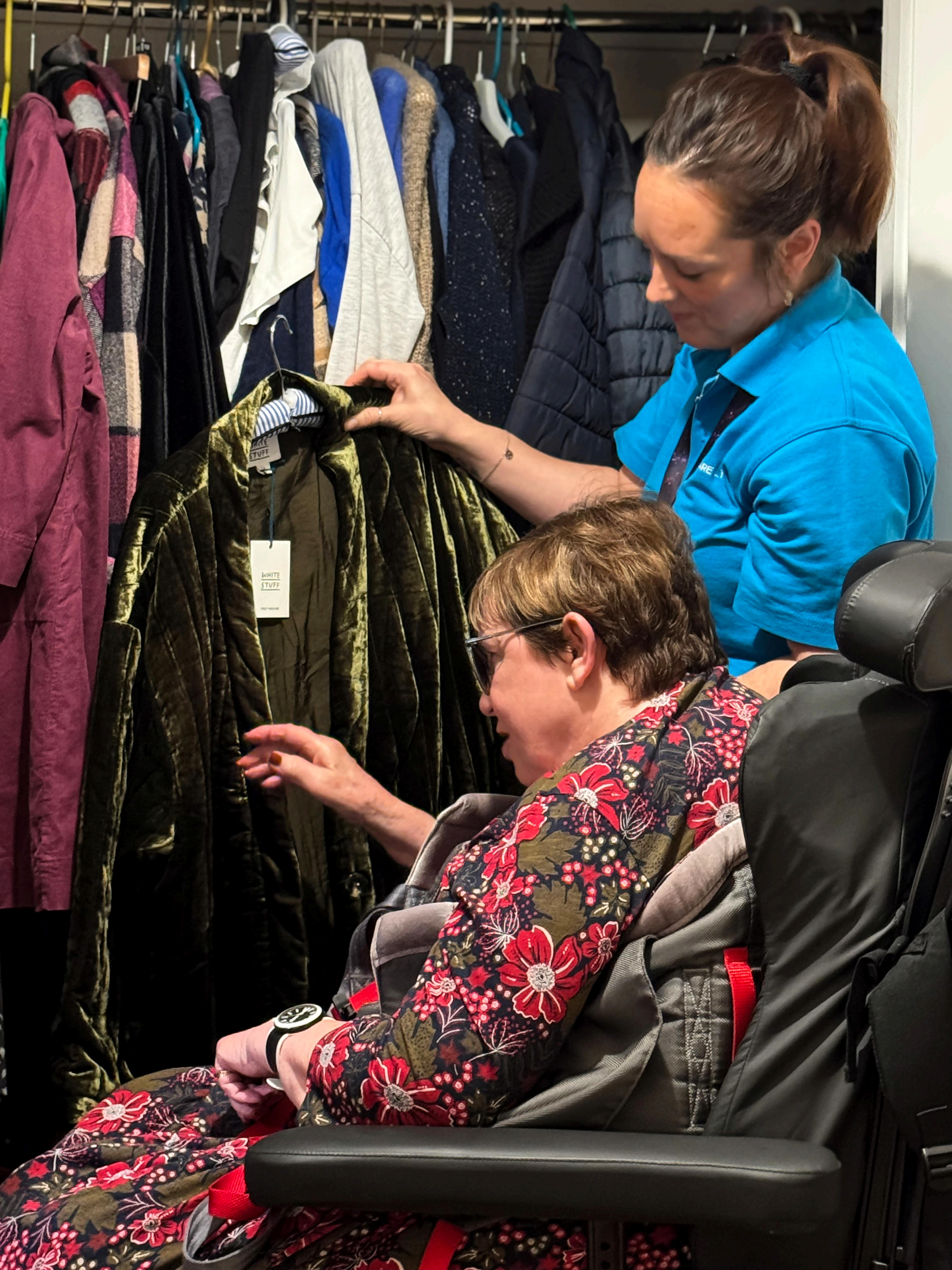


Our Helpline Care Navigators are here to support everyone affected by PSP & CBD. Each Helpline Care Navigator has a designated area (see map) where they provide proactive support, including:
• Information on all aspects of living with PSP & CBD, such as symptom management, benefits and entitlements and everyday living
• Emotional and practical support
• Contact details for local support, which may include Support Groups
• Information about how PSPA can support you
• Information about health and social care and how to access these services
• Signposting to other sources of information
• Referral for non-means tested benefits applications via Department of Work and Pensions (DWP) home visiting service
• Supporting evidence about PSP & CBD for Blue Badge applications and Continuing Healthcare applications
• Provide specific information written for health and social care professionals and access to Education Volunteers.
Our Helpline and information service is available Monday to Friday 9am to 9pm.
Tel: 0300 0110 122 or email helpline@pspassociation.org.uk
Margaret Powell House, 415a Midsummer Boulevard, Milton Keynes, MK9 3BN
As our 30th Anniversary year has come to an end I want to take the opportunity to say thank you for all the support you gave to PSPA in 2024! The number of people taking part in challenge events increased by 36% and the money raised from our Walk for Hope increased from £15,000 in 2023 to £88,000 (including a £30,000 matched donation) in 2024, which is remarkable. I’m pleased to say our match funder has been so impressed with the achievement they’ve increased their offer for 2025, and will donate £40,000 if we can raise £40,000.
On page 32 you can read about how Walk for Hope is being renamed ‘Pathway to Progress’ and how you can get involved this year.
The incredible support we have received from the PSP & CBD community also extends to volunteering. Last year we saw record numbers of volunteers joining our charity. The hard work and dedication from supporters and volunteers enables PSPA to continue to deliver services, fund research and raise awareness.
The first part of 2025 is set to be busy with the launch of The Salt Path film about the remarkable journey made by Raynor and Moth Winn, who lives with a CBD diagnosis. You can read more about this on page 6. We will be supporting TeamPSPA at the London Marathon in April (page 18), and contributing to the Tau Global Conference. The conference, which is being hosted in London in April, will bring leading experts together to collaborate and discuss key issues impacting the tau research community. This conference plays a critical role in bringing together interdisciplinary researchers to move tau research forward. We know research is important to our community and we will be releasing £350,000 from the Understood Appeal for research grants in spring of 2025.
We have much we want to achieve this year, please turn to page 20 to read more about our top priorities for 2025.

Rebecca Packwood PSPA CEO
USEFUL CONTACTS
Main contact 01327 322410
info@pspassociation.org.uk
Helpline 0300 0110 122
helpline@pspassociation.org.uk
Fundraising 01327 322414
fundraising@pspassociation.org.uk
Volunteering 01327 368597
volunteering@pspassociation.org.uk
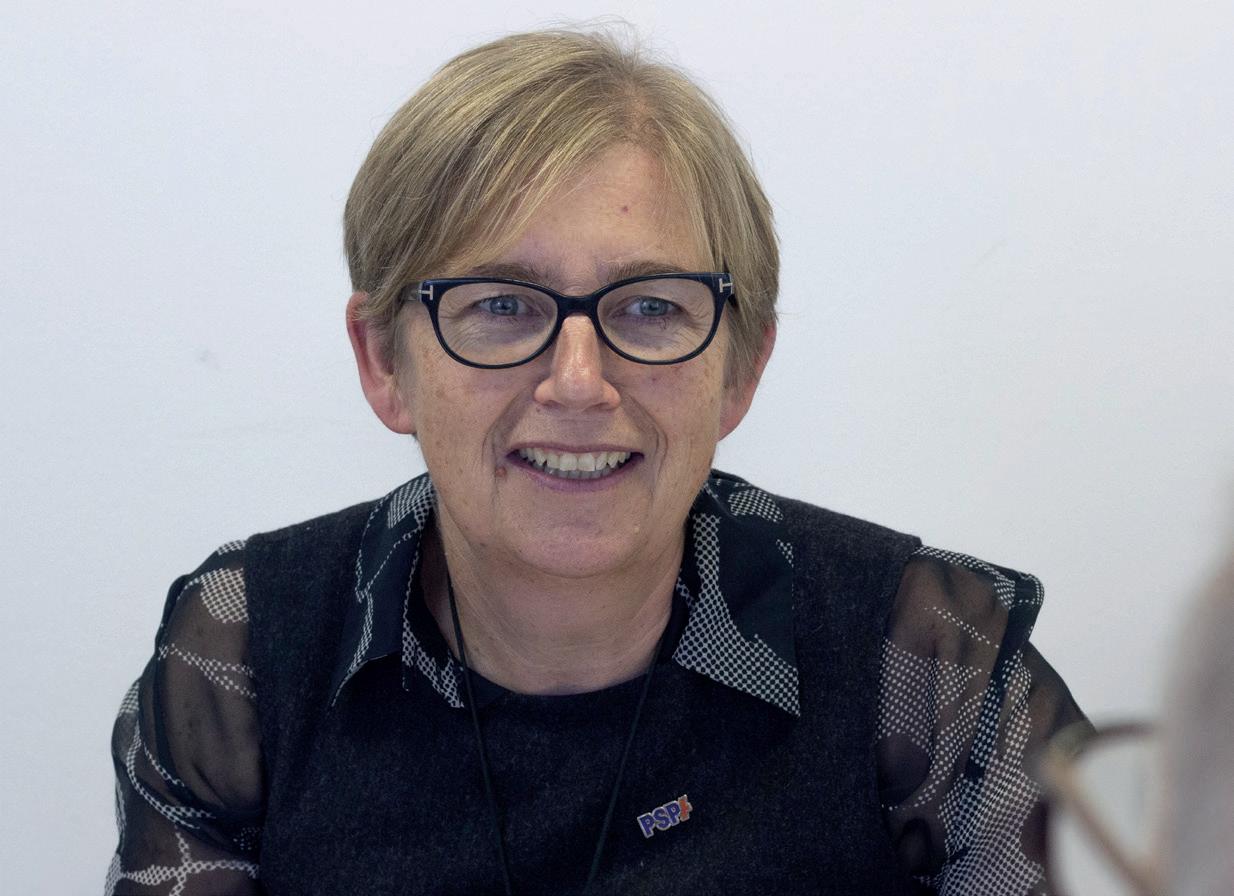
Rebecca Packwood, CEO 01327 322413
rebecca.packwood@pspassociation.org.uk
Carol Amirghiasvand, Director of Service
Improvement and Development | Deputy CEO 01327 356137
carol.amirghiasvand@pspassociation.org.uk
Helen Chapman, PSPA Matters Editor 01327 356135
helen.chapman@pspassociation.org.uk
Megan Hodgson, Research Coordinator 01327 322418
research@pspassociation.org.uk
To provide a place for connection, chat and support, PSPA is launching two Facebook private groups in the summer of 2025 to serve active and bereaved carers. We are looking for home-based Volunteer Facebook Group Moderators to help monitor these new Facebook groups, and signpost to further information and support.
The volunteer moderators will create a welcoming environment for carers to share their experiences, support each other, chat and build friendships. This is a perfect volunteer role for anyone who wants something that will fit around family life, work and other commitments. To find out more please contact the volunteering team on 01327 356137 or volunteering@pspassociation.org.uk
Our Christmas Bauble Appeal raised almost £10,000 to support PSPA’s Helpline expansion. Thank you to everyone who made a donation. Over 173 people visited our virtual tree and made a donation in memory or tribute to a loved one.
Stephen Rodgers supported the appeal by sharing his experience of living with CBD. Stephen and his sister Kathleen Chappelle helped us to shine a light on the condition and the reason why donations are so important. Sadly Stephen died during the appeal. We would like to thank Stephen’s family for being part of our Bauble Appeal and our thoughts are with them at this difficult time.


We are delighted to welcome another new member to the PSPA team. Amber Allport joined PSPA just before Christmas, as the new Fundraising Coordinator. Before joining the PSPA team, she worked as a fundraiser for the RSPB.

"I AM LOOKING FORWARD TO BUILDING POSITIVE AND MEANINGFUL RELATIONSHIPS WITH OUR AMAZING SUPPORTERS."
Amber shared what she is most excited for about her new role: “As the Fundraising Coordinator at PSPA, I am looking forward to building positive and meaningful relationships with our amazing supporters and working towards providing better support and quality of life to people who are affected by PSP & CBD. Fundraising allows charities to do the critical work that they do, and I am excited to be part of a team where we can make a real difference!”
After ten years of volunteering for PSPA, Barbara Wareing is taking a well-deserved break. Barbara trained as a Physiotherapist and had 10 years of palliative care experience when she started to volunteer for PSPA.
She first came across PSPA in 2012 whilst she was still working and attended many of our study days to increase her knowledge of PSP & CBD. Barbara also had a personal connection to PSPA through her friend, whose dad was living with PSP.
When she retired in 2016, she started to help out at the PSPA Support Group in Liverpool. When the coordinator moved on she took over the running of the group until 2020 when Covid hit and the country went into lockdown.
Barbara also trained as one of our evening Helpline Volunteers, completing her first shift in August 2018. We would like to say a big thank you to Barbara and wish her all the best for the future.
Our commitment to funding the very best research in PSP & CBD is supported by a community of scientists and researchers who volunteer their time to join our Research Committee. We are very excited to welcome Professor Maria G Spillantini from the University of Cambridge and Dr Kathryn Bowles from the UK Dementia Research Institute at the University of Edinburgh to our Research Committee. Their expertise and experience will be a great contribution to our work in pushing forward knowledge and treatment of PSP & CBD.

PSPA SUPPORTS TAU GLOBAL CONFERENCE LONDON 2025
PSPA is one of the key sponsors of the Tau Global Conference that will bring together leaders in the field of tau research. By bringing experts together to build connections and foster collaborations, we help to accelerate progress in tau research.
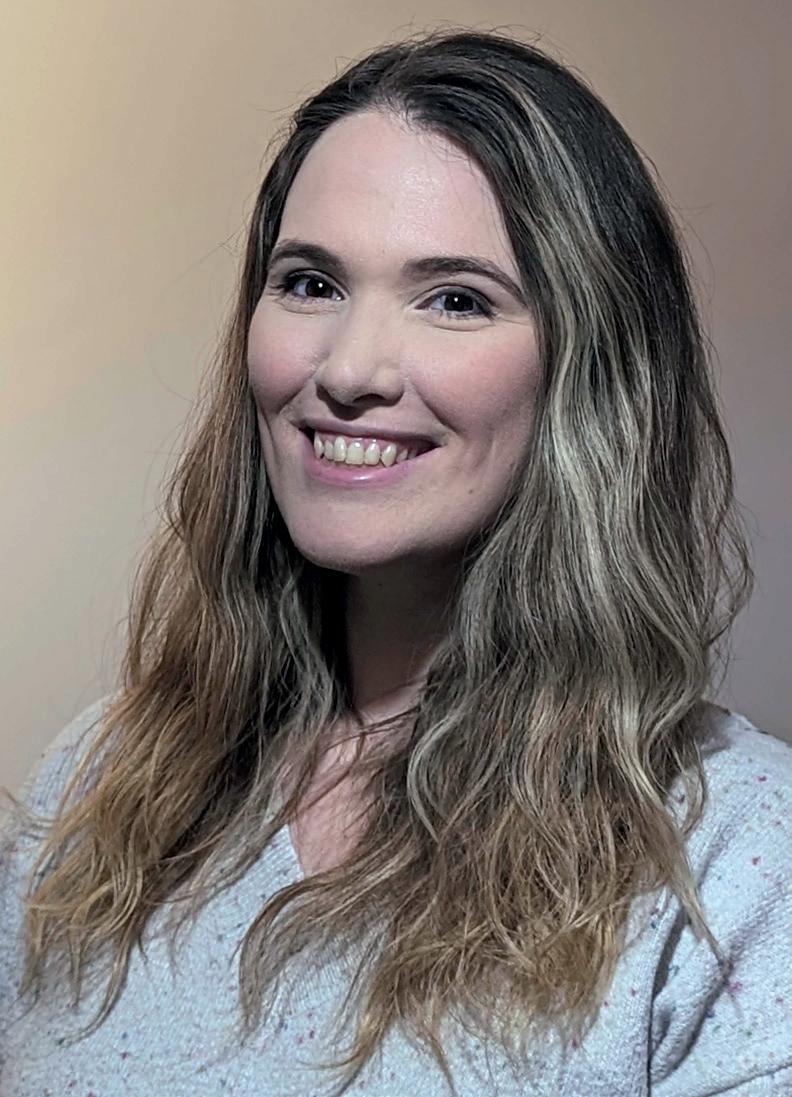
The conference takes place on 24 –25 April in London and also online. PSPA Research Committee members Professor Huw Morris, Dr Maura Malpetti and Dr Kathryn Bowles are part of the scientific programme committee. We will share highlights in the summer edition of PSPA Matters.



You can still travel when you are living with PSP or CBD and enjoy trips in the UK or abroad. It just takes a little bit of extra planning.

Holidays and days out can boost mental and physical health, reduce stress, increase life satisfaction and improve bonds with friends and family. Planning ahead and taking the time to do some research can make holidays abroad and in the UK not only achievable for people living with PSP & CBD, but enjoyable too.
Keen travellers Allan Foley and his wife Julie continue to enjoy family holidays together. Julie said: “Allan and I have always loved our holidays. Over the last 20 years we’ve travelled the world. Since Allan has been diagnosed with PSP, we have gone abroad on shorthaul holidays to places like Tenerife and Majorca.
“Over the past year Allan has deteriorated quite a bit. So now we go on holiday closer to home. Last year we went to Saundersfoot and stayed in a caravan. It only took one and a half hours to get there, so it was manageable for Allan. The harbour is flat, perfect for wheelchairs so we can go for a little walk, sit outside and enjoy a cuppa. Allan is no longer able to speak and has no mobility, but he still enjoys going away. I think it lifts both of us up. Being able to see the sea and get some fresh air improves our mood.”
Living with PSP & CBD might make the planning process a little more complex and it is important to consider parking and access requirements before you go, as Julie explains: “The key thing is to make sure you do your research and prepare. I always look up where we are going to see what is in walking distance and I make sure it is flat. I’ll pack a bag with all the essentials
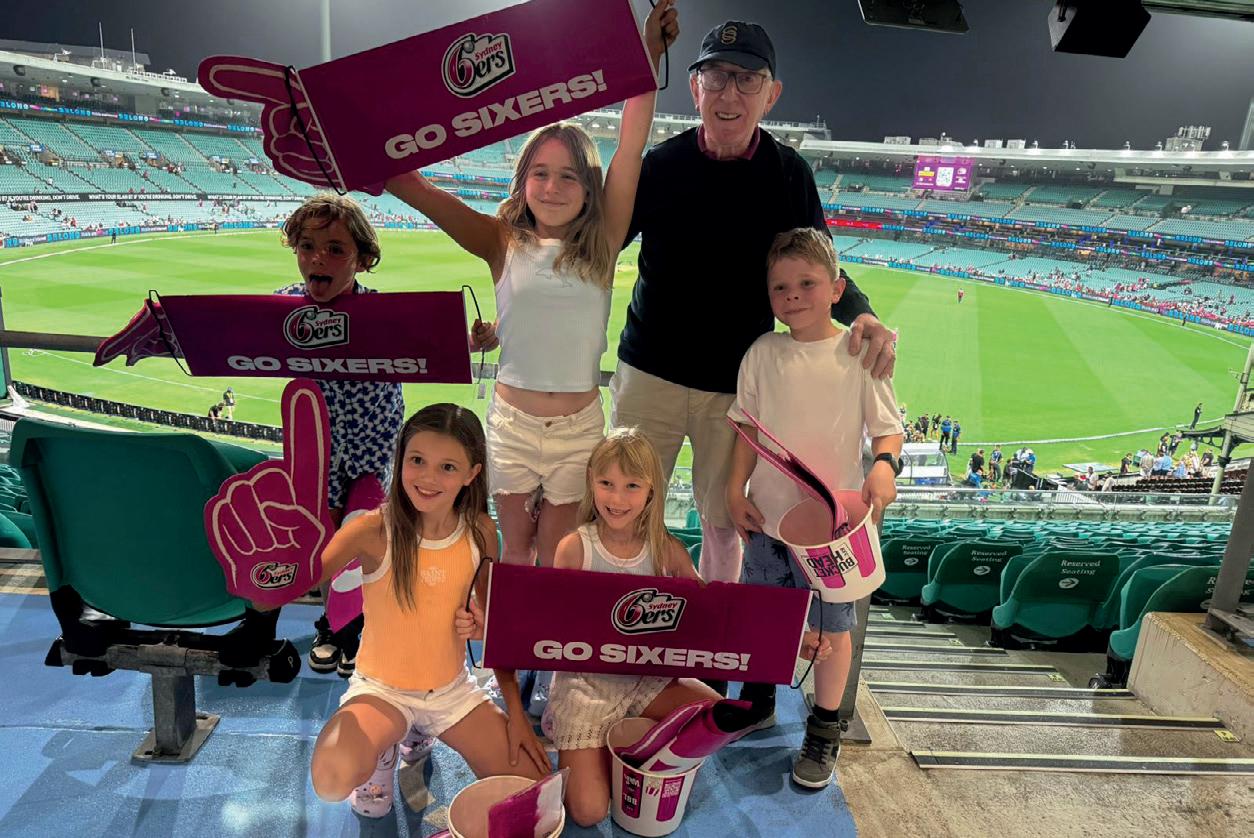
he needs from wipes to pads to straws and the special cups he uses. I also bring some food with me along with thickeners and high-calorie drinks, just in case he refuses other food on offer. At least it means I know he is getting his calories in. I’ll also make sure to always remember his hat and gloves so he doesn’t get cold.”
Julie and Allan are currently planning a trip to the Brecon Beacons. Julie said: “We will go to the ice cream parlour and sit outside in the beautiful surroundings. PSP has taken so much from us but we will continue to do whatever we can to make the best of life.”
Joyce Nichol and her husband Gavin recently got back from a six week holiday to Australia. Gavin was diagnosed with PSP one and a half years ago. Before that, in 2022 he had been diagnosed with atypical Parkinsonism. Following that diagnosis the couple went on their first family holiday with their grown up sons and their families to Thailand.
The Thailand holiday was such a success that the family decided to go away together every year. With two sons living abroad (one in Sydney and one in Jeddah) the family holiday provides the perfect get together as Joyce explains: “Gavin’s diagnosis of PSP was devastating for the whole family. We all wanted to make the most of life and spend precious time together. We’ve so far enjoyed four family holidays in the last few years.
“The first year we travelled to Thailand and last year we went to Vietnam. Every holiday has been a great success. We make sure that we have travel insurance and we use the airline assistance service which is very good. I believe they will take you from the taxi all the way through customs to the departure gate, but we usually just need them from check-in. There are no queues and everyone is very helpful.”
The holiday provides a break for Joyce as well as Gavin, because she is surrounded by family who can help out. Joyce said: “Both our sons, their wives and children are all very caring to Gavin. Because all the family is there it gives me a break from caring for Gavin because everyone chips in. We are fortunate that Gavin is quite mobile but he does fall quite a bit so we need to make sure someone is with him all the time.
“Gavin thrives on being surrounded by family. His mobility and speech all improve when he is away with everyone. It just has such a positive impact on him both physical and mentally. Travelling when you have PSP means you have to be organised and plan ahead.
“In Australia the transport system was excellent and we used buses. Gavin is of course very slow getting on and off the buses but everyone we came across was so patient and helpful. There are places we couldn’t go to,
Airport assistance can be prebooked and arranged free of charge. You can have someone to help you from your taxi at the airport, assist you at the check-in desk, escort you to the aircraft and help you board.
You can ask for hoists and lifts on/off the plane.
Airlines usually require you to have someone with you at the airport and on the flight if you need to: evacuate the plane in an emergency, use the toilet, eat and drink or communicate with staff.
If you need prescribed feeds and fluid supplements on the plane, they must have the original label and original
like trips to waterfalls or anywhere with rocky terrain. But we simply adapt and focus on the things we can do. We’re already planning our next trip away.”
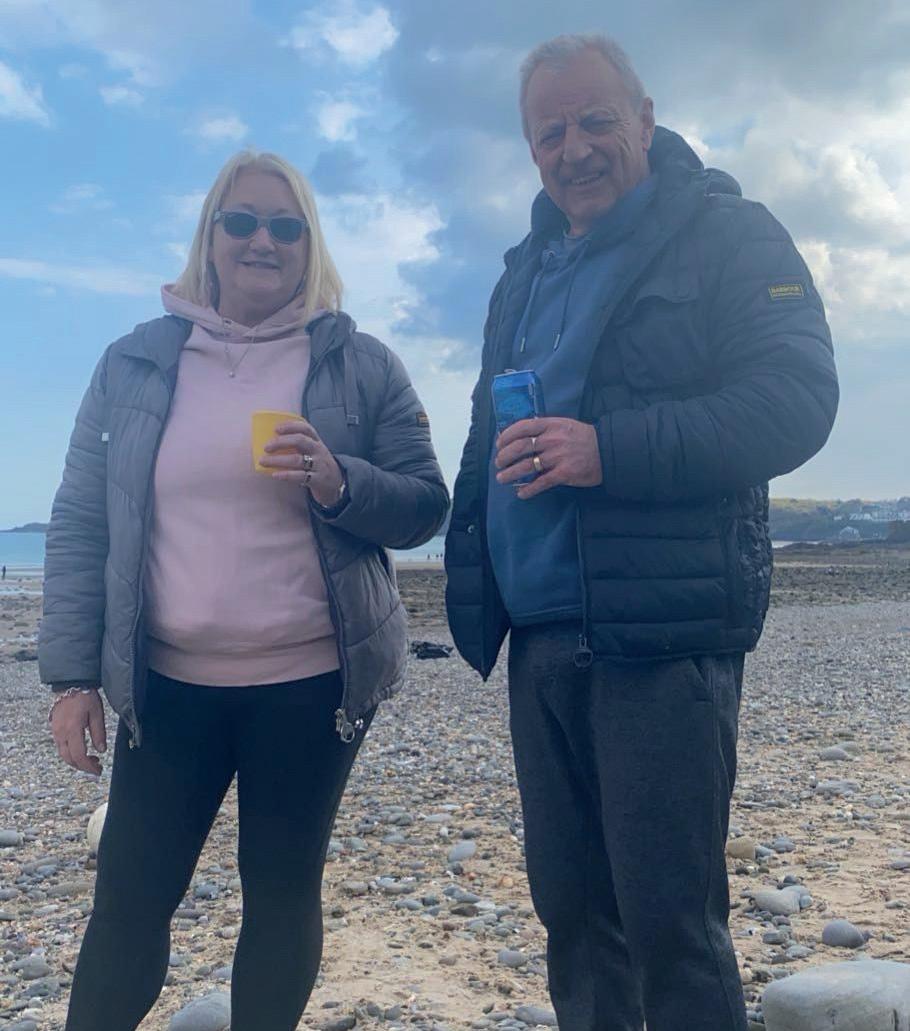
packaging given by a pharmacy along with a doctor’s note to ensure they can be taken through security.
Try to find accommodation in accessible locations/resorts (no steep inclines or hills) and book accessible rooms suitable for the level of your mobility; e.g., rooms with turning areas for wheelchair users, bed rails, room hoists, walk-in shower rooms, wheel-in shower chairs.
A cruise can be a very practical choice, as all of your facilities are in one place and you can visit several destinations while only unpacking once.
You can choose from a range of wheelchair-adapted cabins,
including an ocean view cabin, balcony cabin or a suite.
If you are taken ill whilst you are abroad you need to remember that since leaving the EU the European Health Insurance (EHIC) has been replaced with the UK Global Health Insurance Card (GHIC).
Take some PSPA information with you just in case you need to share it with health professionals whilst on holiday. Our All About Me Leaflet would be a really useful form to complete and take with you. Please contact the PSPA Helpline or download a copy from our website.
NHS Continuing Healthcare (CHC) is a package of care funded by the NHS in England and Wales, but provided outside of hospital for people with significant ongoing care needs related to their health.

NHS Continuing Healthcare (CHC) funding can cover care in your own home or in a nursing home and, unlike social care, is not means tested. Receiving this care can make a big difference to a person’s quality of life.
To qualify for CHC funding, you must be living in England or Wales and assessed as having a ‘primary health need’. Different systems are in place in Scotland and Northern Ireland. This usually means you have nursing or healthcare needs which cannot be met by adult social care services. The assessment is based on the nature, complexity, unpredictability and intensity of identified health needs, rather than a specific diagnosis.
CHC assessment can be a complex and daunting process. National data shows that in 2024 only around one in five people who were assessed were deemed eligible for CHC funding. There is also significant variation across the country, revealing a postcode lottery where some people are funded while those in a different area but with similar needs are refused.
Joyce Shearsmith cares for her husband Colin who is living with PSP. Joyce has her own health problems which makes caring for Colin especially challenging. They experienced quite a battle to get CHC funding.

“PAYING FOR CARERS FOUR TIMES A DAY ALONGSIDE ALL THE OTHER COSTS WOULD HAVE BEEN OVER £100,000 A YEAR. SECURING CHC FUNDING HAS TAKEN AWAY A HUGE AMOUNT OF ANXIETY AND STRESS."
Their first attempt was unsuccessful. At the second attempt they were awarded 60% of care costs.
Learning from past experience, the couple ensured they were well prepared for the second assessment. They had their son, daughter and Colin’s Occupational Therapist in attendance. The outcome from this meeting was that CHC would fund 60% of the new care package and Joyce and Colin would fund 40%. The care package consisted of one carer visiting three times a day.
Joyce said: “Securing CHC funding has been something of a battle. However, getting awarded 60% of care costs has made a big difference. We now pay approximately, depending on weekends, £611 a week for Colin’s care, which while not ideal, is doable.
“We also have a three-hour sitting service where a carer takes us out. This is a lifeline for us. I’m not allowed to take Colin out alone so it feels like a little touch of normality. We can spend a couple of hours in a garden centre and enjoy a coffee and cake together, like old times. In these moments I feel like I’m Colin’s wife and not his carer.”
Joyce asked CHC for an early review meeting because of her own health challenges and the impact it has on her caring for Colin. The meeting was held in November. Joyce said: “The meeting went really well and CHC agreed to increase the care package to four visits a day with an extra 30 minutes for three of those visits. The meeting was much more friendly and understanding than previous ones. I feel they took on board our situation and the impact it had on my own health.”
PSPA has information sheets detailing CHC and a checklist to work through in preparation for requesting a CHC assessment. Sadly we hear from many people who have been refused funding. We are currently compiling evidence of the experiences faced by people with PSP & CBD and will be publishing a report in the spring.
Helen is a carer for her husband Pete, who is living with PSP. At first they self-funded Pete’s care and after a difficult and challenging process, were finally awarded CHC funding in May 2024. Helen estimates that they were paying around £36,000 a year for Pete’s care when they were self-funding. When they were finally told they would be assessed for CHC funding, Helen made sure she was well prepared.
Helen said: “I gathered all the information and evidence together. For the initial assessment there were two social workers and my son who is an NHS consultant. In order to determine Pete’s mental capacity they tried to ask Pete a series of questions and it was clearly making him quite distressed as he is non-verbal. It was then agreed that the assessment would be undertaken with ‘best interest’.
“They also saw how he couldn’t do anything for himself. Because he was non-verbal they said they were unable to tell if his cognition was poor. I remember them asking how I knew when to give him a drink. I replied I didn’t I’d just offer it to him throughout the day to ensure he remains hydrated.”
CHC
CAN BE A COMPLEX AND
NATIONAL
A month later a full assessment was held online and Helen was told that Pete was being recommended for CHC funding. Helen said: “Pete’s care package is for two carers four times a day. It doesn’t include respite care or his visits to the Day Centre three half days a week, so I continue to fund those parts of his care together with sitters if I want to go out. But I am grateful that the financial burden of paying for Pete’s personal care at home has been lifted.
“Paying for carers four times a day alongside all the other costs would have been over £100,000 a year. Securing CHC funding has taken away a huge amount of anxiety and stress. Caring for someone full-time is hard enough without worrying about the finances. Securing the package has also meant that we feel more connected to the NHS. I know Pete is getting the good personal care and as his wife and carer that gives me peace of mind.”
We are gathering experiences faced by people with PSP & CBD in NHS Continuing Healthcare assessments in preparation for our campaign to improve CHC funding for PSP & CBD Awareness Week. If you would like to share your experiences please contact us at communications@pspassociation.org.uk
Contact PSPA Helpline on 0300 0110 122 or email helpline@pspassociation.org.uk if you would like to speak to someone or request information on CHC funding.
PSPA Support Grants aim to help improve the quality of life for people who are living with or affected by PSP & CBD.

“I LOOKED ONLINE TO SEE IF THERE WERE ANY GRANTS THAT WOULD HELP US FUND THE SESSIONS. I READ ABOUT PSPA’S SUPPORT GRANTS AND DECIDED TO MAKE AN APPLICATION."
STEVE AT ONE OF HIS SESSIONS

When Steve Bird was initially diagnosed with Parkinson’s disease, the advice he was given was to keep active and fit. But doing exercise proved hard for Steve who had started to experience falling backwards. Steve’s diagnosis was eventually changed to PSP in November 2022. Thanks to a PSPA Support Grant, Steve has been able to continue to try and be active and mobile, as his wife Helen explains.
“When Steve was diagnosed with PSP it was a huge blow to him. He was always very sporty and played rugby and golf. To be so active and to be told you have a disease that will progressively leave you disabled is and continues to be hard to come to terms with.
“When I was looking into physiotherapy, I came across an organisation that runs sessions for people with neurological conditions using the method of conductive education, an educational movement approach.
“I looked online to see if there were any grants that would help us fund the sessions. I read about PSPA’s Support Grants and decided to make an application. The physiotherapist helped me complete the form and days later we were told that the application had been successful and we were awarded a grant to fund some of the sessions.”
PSPA Support Grants can provide a one-off payment of up to £250 to help provide an item or

service. Applications are assessed on the impact the grant will have on the person living with PSP or CBD, or their carer.
Helen continues: “It was a huge relief. Steve is now in his second year attending these sessions and really enjoys it. He goes every week and has made friends there. While Steve is at the session I go for coffee and cake with one of the other wives and we laugh or rant about what damage our ‘better’ halves have got up to the previous week. We both get something out of it.
“Living with PSP can be very isolating, so it is important to socialise with people who understand. Many of our family and friends don’t really know how to deal with Steve and find it hard to communicate with him because his speech is so affected. So, to be with people in similar situations really does make a big difference and it is good to see Steve enjoying himself.
“As well as the benefit of getting out the house and mixing with others, I also see the physical impact the sessions have on Steve. He is taught to walk in a rhythm which helps his balance and how to sit down slowly. Through conductive education, people learn how to manage and deal with the difficulties caused by their condition to enable them to keep as much of their mobility as possible. I’m grateful we’ve been supported by PSPA to find ways to do this for as long as we can.”

Christine Wood’s husband, Jim, had always been very active, enjoying a wide range of activities including wind surfing, cycling and walking. Jim’s vision and PSP diagnosis could have put a stop to this interest, but a PSPA Support Grant has helped it continue by funding one-to-one exercise classes.
Christine said: “Exercise is important to Jim. He was always doing something and enjoyed hobbies like wind surfing, cycling and walking with his family. Unfortunately, when he developed tunnel vision his sight progressively deteriorated leaving it severely impaired. This meant he could no longer do the activities he enjoyed.
“A few years later in 2022 Jim received a PSP/MSA diagnosis. Following his diagnosis, Jim received a number of week’s physio support which he enjoyed. And after the course was completed, he continued the exercises at home. But it’s not quite the same as being given one-to-one support, in person.
“I was at a PSPA Carer Support Meeting when someone suggested we applied for a support grant to help Jim continue with his love of exercise. I must admit at that time, I wasn’t convinced exercise classes could be funded. I thought the funding would be more for people who needed equipment of some sort or help at home.
“I researched the grants on the PSPA website and contacted a few of the healthcare professionals
involved in Jim’s care, to see if they could help with the application. Jim’s Psychiatric Nurse agreed to complete the application on our behalf. She must have done a good job as I couldn’t believe it when I heard from PSPA to say our application had been successful. It was like a dream.
“We were awarded a grant of £250 to provide Jim with one-to-one personal training sessions once a week at the local leisure centre. The personal trainer is great and very caring. She bases the exercises on the ones the physio initially developed for Jim, helping with balance and core strength. And he loves it. When I drop him off, he has real enthusiasm in the way he moves and walks. We believe it has helped him to maintain some mobility and his dietician said his body weight has stayed the same thanks to the exercise he is doing.
“There is also a significant benefit to me because while Jim is having his exercises session, I get an hour to myself too, to go to the shops or whatever. Then when I pick Jim up, we have a coffee out before heading home again.
“I was pleased to hear we can apply for a grant each year, so I am planning to apply again to help keep the sessions going for Jim. The sessions really are a lifeline for both of us, so PSPA’s grant is a huge help.”
Prompted by his daughter who had read about PSPA’s Support Grants online, John Hunt decided to make an application on behalf of his wife Sheila, who is living with PSP. Sheila was using a four-wheel walker, but with the colder weather on the horizon, and with her progression, John wanted to get her a wheelchair.
John said: “My daughter suggested we got Sheila a wheelchair so she could continue to enjoy days out with the grandchildren. Sheila’s legs are failing fast and she is struggling with her right-hand grip so I decided to apply for a grant to put towards a new wheelchair.
“Every day I made sure that Sheila and I walked around the park and that she pushed the trolley in the supermarket to keep her mobility for as long as
possible. The bad weather has made it impossible for us to keep up with this routine. She has deteriorated quite a bit this winter.
“When I found a suitable wheelchair Sheila’s Occupational Therapist did the application. Soon after PSPA contacted us to say the application was successful and that they would be covering the cost of the wheelchair. We were so grateful. We would have been happy with any contribution towards it.
“PSPA has helped us hugely. The wheelchair has made such a difference to Sheila. She has been able to enjoy days out with our grandchildren – something that would not have happened without the wheelchair.”

Visit www.pspassociation.org.uk/informationand-support/for-professionals/support-grants/ to read about our support grants and how to apply for them. If you would like an application form to be sent to you please contact the PSPA Helpline on 0300 0110 122 or helpline@pspassociation.org.uk
On Sunday 27 April, TeamPSPA runners will lace up their trainers to take on the iconic London Marathon.
During the long winter months, 90 incredible people have braved the wind, rain and ice in preparation for running in the world’s most iconic race. United by their determination to raise awareness and funds for PSPA, they each have their own personal reasons for running. Here, three members of TeamPSPA share their motivation for taking on the London Marathon.
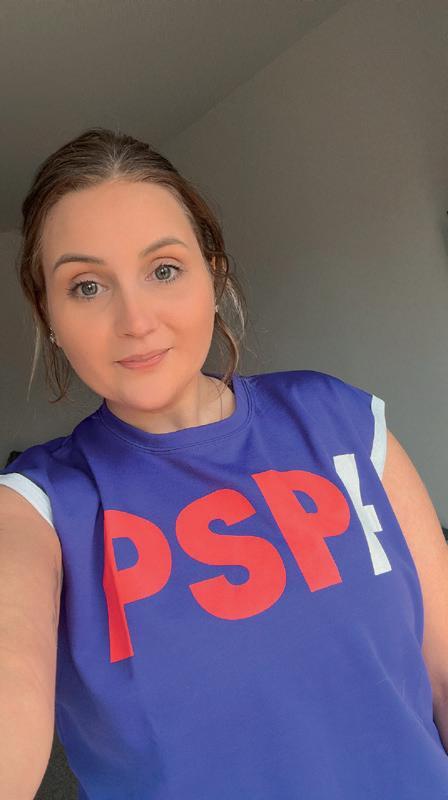
SARAH HIATT

Sarah Hiatt is running in memory of her beloved grandma, Cindy, who sadly died from PSP last year.
This is Sarah’s first marathon, as she explains. “I hate running. It’s hard and I just don’t enjoy it. But I have a big reason for running the London Marathon this year, and that reason is Grandma.
“Grandma was the most wonderful person and seeing her deterioration from PSP was tough for everyone. We watched her go from being the life and soul of the party to becoming a shell of her former self. We miss her witty sarcastic remarks and her fun energy.
“During Grandma’s four years of living with PSP, PSPA was a huge help. Information provided by PSPA helped the family to better understand the condition. PSP is not well understood and doctors and other health professionals weren’t aware of it. Even the week before she died when she was suffering with mouth sores and needed antibiotics, the doctor said she needed
to go to the clinic. They had no understanding of how impossible that was for her with such advanced PSP.
“My love for Grandma is stronger than my hate of running. Raising money and awareness for PSPA to help others affected is keeping me motivated. I started training after Christmas. It is quite a big time commitment with the long runs taking over four hours.
“I feel nervous about running a marathon. There is a fear of the unknown and how I’ll be able to manage it. PSPA set up a WhatsApp chat with all the London Marathon runners and that has been really helpful in calming my nerves. It really does feel like we are a team and everyone shares running and fundraising tips. On the day I’m sure I will still be nervous but I’ll also be very proud to put on my PSPA running vest and be part of TeamPSPA.”


The London Marathon will be the furthest Christopher Marchant has ever run, as Christopher explains: “I’ve never been into fitness. A couple of years ago I decided to join my wife in the ‘Couch to 5K’ to improve my health. I kept up the running and did a 10k run, but that was pretty much my limit.
“My motivation for taking on the Marathon is my dad who was diagnosed with ‘probable PSP or CBD’ over
a year ago. It’s been a tough few years for my parents and they’ve struggled to get a confirmed diagnosis. Dad has been pushing for a diagnosis for over six years. He’s travelled to many hospital appointments to try to find out what is going on. It’s been really frustrating to not have a clear explanation for what is happening to him. At least if we had a definite diagnosis my parents could plan for his care and his future needs.
“It’s hard to watch Dad deteriorate. He struggles to walk, talk and eat. He is also struggling to open his eyes. When he does see a doctor they’ve usually never heard of PSP or CBD, so we need to explain the condition to them. For me, running the Marathon is my way of trying to raise awareness of it and I also want to raise money for research so that things like diagnosis can be improved. I’m also doing it in honour of my Dad, who I know will be cheering me on from home.
“Training takes up a lot of time and it’s hard to train during the cold winter months. But running for such an important cause is keeping me motivated. I’m also excited to run in one of the world’s most famous races. My wife and children will be cheering me on and I know I’ll feel so proud to cross the finish line. In truth I don’t care if I run, walk or crawl across the finish line, so long as I complete it.”


For Alice Inglis, running the London Marathon was a way of taking action against PSP. Frustrated by the lack of awareness of PSP and how often her family needed to explain the condition to healthcare professionals involved in her dad’s care, she decided to do something to raise awareness and money.
Scrolling through the fundraising events on PSPAs website, the London Marathon jumped out as one of life’s big challenges. Alice said: “Over the last year Dad’s symptoms rapidly got worse and he died in January, so I’m running in memory of him.
"FOR ME, RUNNING THE MARATHON IS MY WAY OF TRYING TO RAISE AWARENESS OF PSP & CBD AND I ALSO WANT TO RAISE MONEY FOR RESEARCH."
“Dad’s PSP was a situation we couldn’t control, so for me running the London Marathon is a way to do something positive, rather than just feeling hopeless. It’s something I always wanted to do, so last year I thought why not. During the pandemic I took up running and joined a running club, but this will be the furthest I’ve ever run.
“PSPA has been a huge help to us. Mum attends the monthly online carer groups and finds them really helpful. We both went to the research day in Leeds that was so informative. It was also great to meet other people affected by PSP.
“I’ve been fundraising at work and raffled off a hamper. I’m planning on doing some cake sales. None of my colleagues knew anything about PSP so as well as raising money it’s been a good opportunity to raise awareness.
“Running the Marathon will be a huge challenge, but I know it’s something I’ll remember forever. My mum and sister will be there on the day to cheer me on. And I know the money raised will help other families affected by PSP and that will help motivate me to keep going.”
HELP TEAM PSPA!
Team PSPA are set to raise £200,000 for PSPA. If you are inspired to follow in their footsteps why not enter the 2026 London Marathon ballot that will be open at the end of April. www.pspassociation.org.uk/events-list/2025london-marathon/On the day PSPA staff and volunteers will be cheering TeamPSPA at two locations. If you would like to be part of our cheer squad please contact sarah.day@pspassociation.org.uk
Our top five programmes for this year seek to grow our services and increase awareness and research funding.
REBECCA PACKWOOD, CHIEF EXECUTIVE
INCREASED HELPLINE CAPACITY
EXPANDING SUPPORT FOR CARERS
Over the past three years we have focused on increasing the number of people we support in Scotland. Building on this work we have invested in a new Helpline Care Navigator role for Scotland to support the clinics and families impacted by PSP & CBD. We have also created a new Helpline Care Navigator post for Wales. The rest of the team will provide services across England and Northern Ireland.
The Carers Groups introduced in 2023 have gone from strength to strength and as a result we have identified there are some specialist groups that are needed. We have created two new online Carers Groups (see page 30). One group is for carers who are caring for a loved one living in a care home and one is for carers who have recently been bereaved.
IMPROVING KNOWLEDGE OF PSP & CBD amongst health and social care professionals (HSCP’s)
To build the knowledge of PSP & CBD amongst health and social care professionals we will be introducing targeted masterclasses. The first will be held in March targeted at Orthoptists. Alongside the masterclasses we will be producing a specialist guide for Speech and Language Therapists and an animation about CBD to match our existing animation about PSP.
IMPROVING AWARENESS
Our campaigning work will focus on the access to coordinated care with a focus on the challenges of accessing Continuing Healthcare Funding. This is an issue that is raised frequently with the Helpline and when I visit regional Support Groups. It’s an issue which has a significant impact on the whole family. We will also hold an in-person event for health and social care professionals in each region to raise awareness.
NEW RESEARCH FUNDS
A new research grant call will be made in the spring when we will be releasing £350,000 for research into PSP & CBD. These grants will be on top of the seven research projects we are already supporting. We are able to make a new grant call as a result of our Understood Appeal, careful management of income and the generosity of supporters. The appeal will continue throughout 2025, and we hope to be able to raise more funds for research.

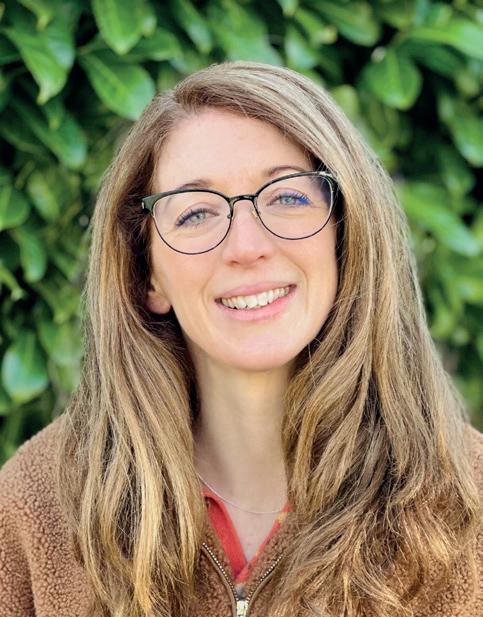

Dr Negin Holland, a Neurologist and Researcher at the University of Cambridge will study variations in brain shrinkage, blood work such as inflammation and genetics, the impact of socioeconomic status and gender on survival in PSP & CBS. The researchers hope that with a better understanding of predictors of survival they can better prioritise targets for new treatments.
1
4
Dr Ruth Lewis-Morton, a Clinical Psychologist from University Hospital Llandough is going to examine the needs of care-partners who are caring for someone with PSP or CBD. There has been limited research on understanding the needs of care-partners. Through this study, Ruth hopes they will be able to share information and make recommendations about what care partners need to improve their quality of life, as well as the quality of life of the person they’re caring for.
Davi Schramm Vontobel, a PhD student at the University of Cambridge, aims to better understand how brain inflammation involving microglia and astrocytes relates to the build-up of toxic tau in the brain at different stages of PSP, and their influence on each other over time. Davi will also study the different types of brain cells that are involved in inflammation to see how they might contribute to disease progression. This project could help identify specific cells or pathways to target with new treatments.
PSPA funds five new research studies to improve the lives of people living with PSP & CBD.


Dr Boyd Ghosh, a Neurologist at University Hospital Southampton is going to examine a fracture risk in atypical Parkinson syndromes. They believe that people with PSP or CBD have an increased risk of fractures which is not adequately assessed or treated by current clinical systems They hope they will be able to suggest a more robust risk score system. In time this could provide evidence which could reduce fractures in people with PSP & CBD therefore prolonging independence and improving quality of life.
5 2 3
Dr William Scotton, a Neurology Consultant at New Cross Hospital in Wolverhampton will examine the impact of ethnicity on PSP & CBD. People from populations other than white Europeans have been underrepresented in PSP & CBD research meaning we don't fully understand how these diseases affect people from other ethnic backgrounds. There may be important differences in lifestyle, environment and genetics that contribute to the disease. By studying a diverse patient cohort and creating a registry in the West Midlands, this research could support more equitable and targeted interventions and enhance clinical trial diversity.
For many people affected by PSP or CBD money can be an extra worry. PSPA’s Helpline can provide information and access to benefits and entitlements.

Living with PSP or CBD can put an additional strain on finances with many people having to fund adaptations and care. Savings and earnings can be quickly depleted after paying for carers, private physiotherapy sessions, accessing help around the home and installing stair lifts and wet rooms. Not to mention the increase in energy costs by keeping homes warm.
Navigating the benefit system can feel overwhelming and many people living with PSP or CBD are not claiming for financial support they’re entitled to. Yet there is a range of disability-related financial support, including benefits for specific needs, tax credits, direct financial support and entitlements.
PSPA’s Helpline can provide information on benefits and is able to make referrals to the Department of Work and Pensions Home Visiting Service. When the Helpline suggested to Melanie Kelly that she apply for Personal Independence Payment (PIP) for her husband Martin, she didn’t hold out much hope, as she explains: “We first applied for PIP in 2020 when Martin had a Parkinson’s diagnosis. He was working as a carpenter,
but he had a fall at work and was sent home, never to return again. Because Martin was a subcontractor there was no additional pay so overnight he lost his income.
“Completing the form for PIP was a nightmare. It was so complex and you had to be very careful what you put down. There was a lot of guidance to work through and it was clear you had to be careful about how you worded things. The application was refused.”
Two years later, when Martin’s diagnosis was changed to PSP, the couple contacted the Helpline who suggested applying for PIP again. Melanie said: “It hadn’t occurred to me to try again. Cathy on the Helpline advised us that it was worth making a new application.
“Looking back I can’t really remember the application process. But I think that’s because Cathy did it for us. She contacted the Department for Work and Pensions and arranged for an assessor to come to the house. She also wrote a supporting letter with information
about PSP. The assessor completed the form with us and was clearly observing Martin as well. Soon after we were told Martin would be awarded PIP at the enhanced rate.”
PIP is a benefit for people who need help participating in everyday life or find it difficult to get around. PIP is a tax free benefit for people aged 16 to 64 to help with the extra costs caused by long term ill health or a disability. You will not be able to make a claim for PIP once you are 65 years old but you will be able to stay on PIP if you claimed or received it before you reach the age of 65.
For Martin, PIP is helping him to manage his symptoms and stay as mobile as possible. Melanie said: “Living with a condition like PSP is very expensive. We’ve had to buy a stairlift, install a wet room and ensure the house is kept warm. All these things add up.
“The PIP allowance enables us to keep Martin as well as possible. The allowance pays for him to have Botox injected into his eyelids every three months to stop the spasms. It also helps to fund a personal trainer twice a week, which is helping to extend his mobility. Receiving PIP has made a big difference to our lives.”
David Tipper was prompted to contact the Helpline following a Support Group meeting. David cares for his wife Jean, who is living with ‘probable PSP or CBD’. Jean was diagnosed in January 2024 where she was eventually told that she had atypical Parkinson’s –possibly PSP or CBD. Since then her mobility, coordination and balance have deteriorated, leaving her at risk of falls.
Jean and David joined their local PSPA Support Group for Stockport and Cheshire where they met group coordinator Val Wallace, who shared with them information on what support they could access. David said: “When we attended the local support group meeting Val gave us a very helpful leaflet. It prompted us to contact PSPA’s Helpline to ask about benefits.
“Having never claimed benefits before we had no idea how it worked or what we would even be entitled to.
I spoke to Deb on the Helpline who encouraged us to apply for a Blue Badge and told me about Attendance Allowance. Deb referred us to the Department of Work and Pensions and said that someone would be in touch to do an assessment. A few days later a visit was arranged and an assessor came to our home. He asked lots of questions. The one question I think really swung it was when he asked if I could leave Jean at home for a couple of nights while I went away. ‘Absolutely not’ I replied. There is no way she could manage on her own.
We were told our application was successful and that we would be receiving the enhanced allowance.”
Attendance Allowance can be claimed if you are aged 65 or over with an illness or disability and need help with personal care, or you need someone to look after you. Attendance Allowance is payable at two rates, depending on the amount of help you need with personal care or supervision. For David and Jean receiving Attendance Allowance has made a huge difference. “We have used it to hire a cleaner. I do all the shopping and cooking so having a cleaner once a week helps me to keep on top of things. The information we’ve received from PSPA has certainly helped us to navigate living with PSP.”
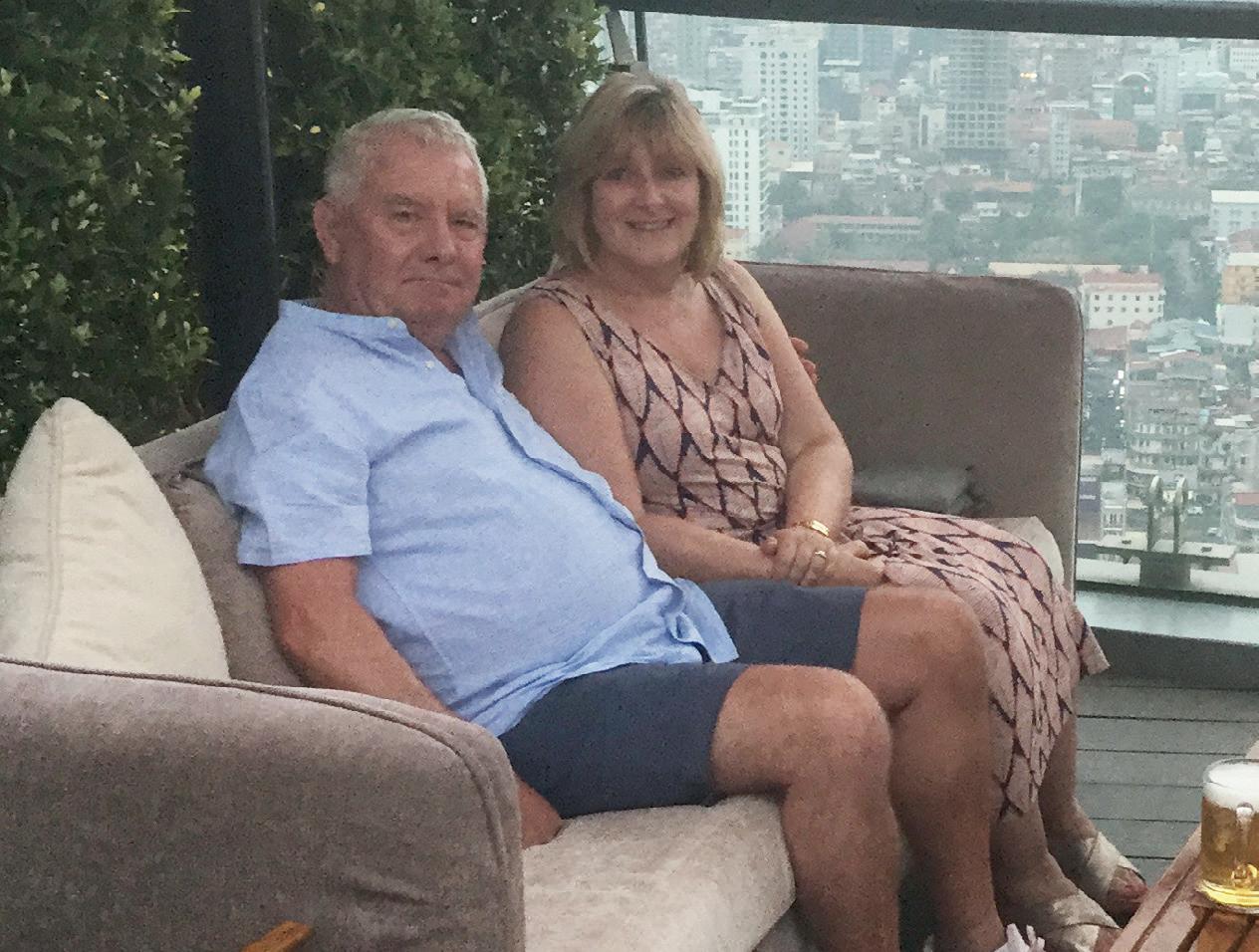
Attendance Allowance
Personal Independence Payment (PIP) or Disability Living Allowance (DLA)
These benefits are not means tested, they do not rely on National Insurance contributions, nor does your income or savings affect your entitlement. They are paid should your illness meet the set benefit criteria. Contact PSPA Helpline on 0300 0110 122 or email helpline@pspassociation.org.uk
General Benefits and Entitlements Information Sheet is available for download from our website www.pspassociation.org.uk/informationand-support/just-been-diagnosed/pspapublications or by contacting the helpline for a printed copy.
Developed by young people for young people, PSPA publishes information on what PSP & CBD are, how they affect people and what support is available.

Last year we published new child-friendly information on PSP & CBD. The information was developed in collaboration with the Youth Advisory Group of eight young people aged between 9 and 17, who all have a family member living with PSP or CBD.
The group met regularly over a six month period to ensure the information was accessible, relevant and answered questions young people might have about these complex conditions. Their collaboration made sure the content reflected the type of information young people might need to understand how PSP & CBD could affect their loved ones.
Coen Maric decided to join the Advisory Group because his grandad is living with PSP. Coen said: “It was fun being part of the group. It was really good to find out more about PSP too as my grandad has it and it’s helpful to understand what will happen to him and how I can help him more. It means I can also tell my younger sister how to help him too.

I’m quite proud that I was part of something that will help other people like me as well as people who have PSP.”
Key features of the new web information include diagrams explaining where PSP & CBD develop in the brain, answers to questions and voice notes from members of the group sharing details of their experiences.
Since launching on International Youth Day in August 2024, the page has already seen almost 300 visits. We are proud to have developed this resource in collaboration with young people and are excited for it to continue making a difference to young people in the future.
View the information at www.pspassociation.org.uk/ information-for-young-people/

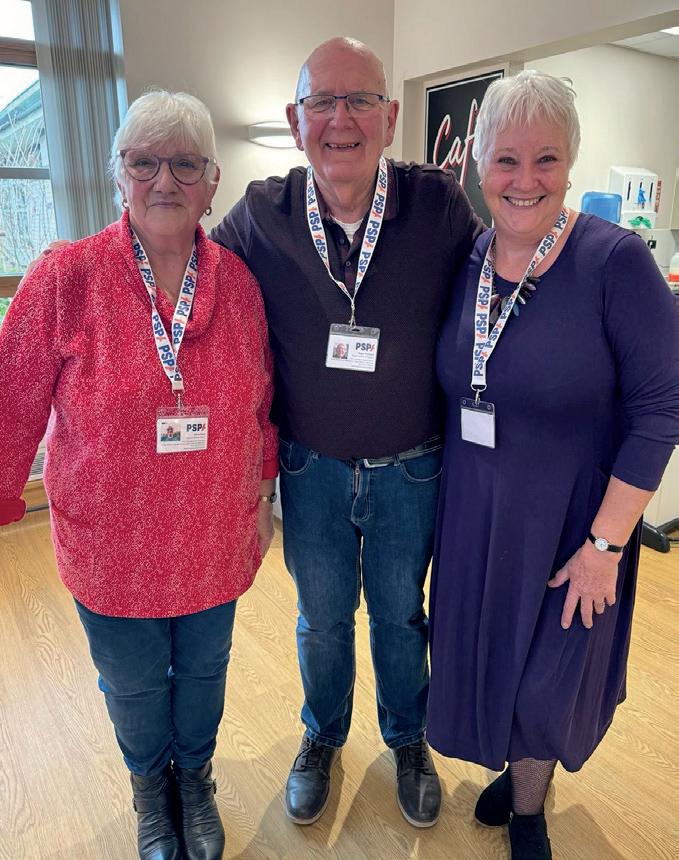
Volunteers are the heart of PSPA. Every day these incredible people are making a difference to people affected by PSP & CBD. Would you like to join them?
Volunteers are vital to everything we do and without them we simply couldn’t provide the amount of support we offer.
As PSPA continues to grow, so does our need for volunteers. We need volunteers to support our key services, including the PSPA Helpline and our education programme. Volunteering in these roles requires a few hours each month and is incredibly rewarding. Not only does it offer a unique opportunity to make a real difference to those affected by PSP & CBD, but it also allows you to develop new skills, gain

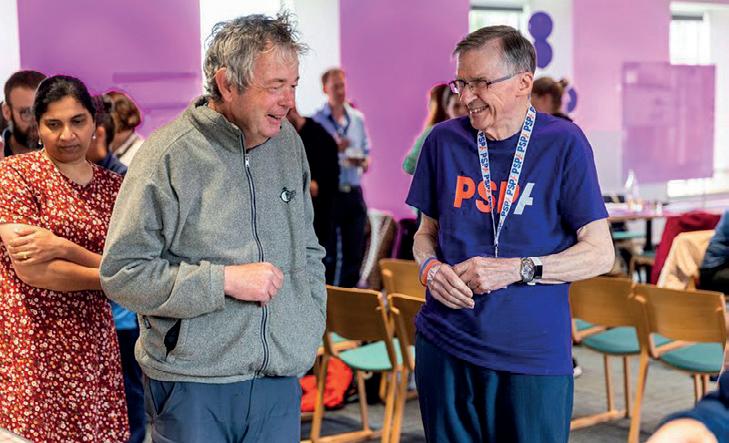
confidence or build on existing experience and knowledge. You will also join a wonderful group of people determined to improve the lives of all those affected by PSP & CBD.
Your time and expertise could be the support someone needs. If you are interested in getting involved, more information on the available roles and how to apply can be found on our website or by contacting volunteering@ pspassociation.org.uk
LEARN MORE ABOUT OUR VOLUNTEERING
ROLES AT www.pspassociation.org.uk or email volunteering@pspassociation.org.uk
Lorna Keeling has always loved clothing and colour. Here, she shares her love for fashion and how her clothing choices have adapted since her PSP diagnosis.
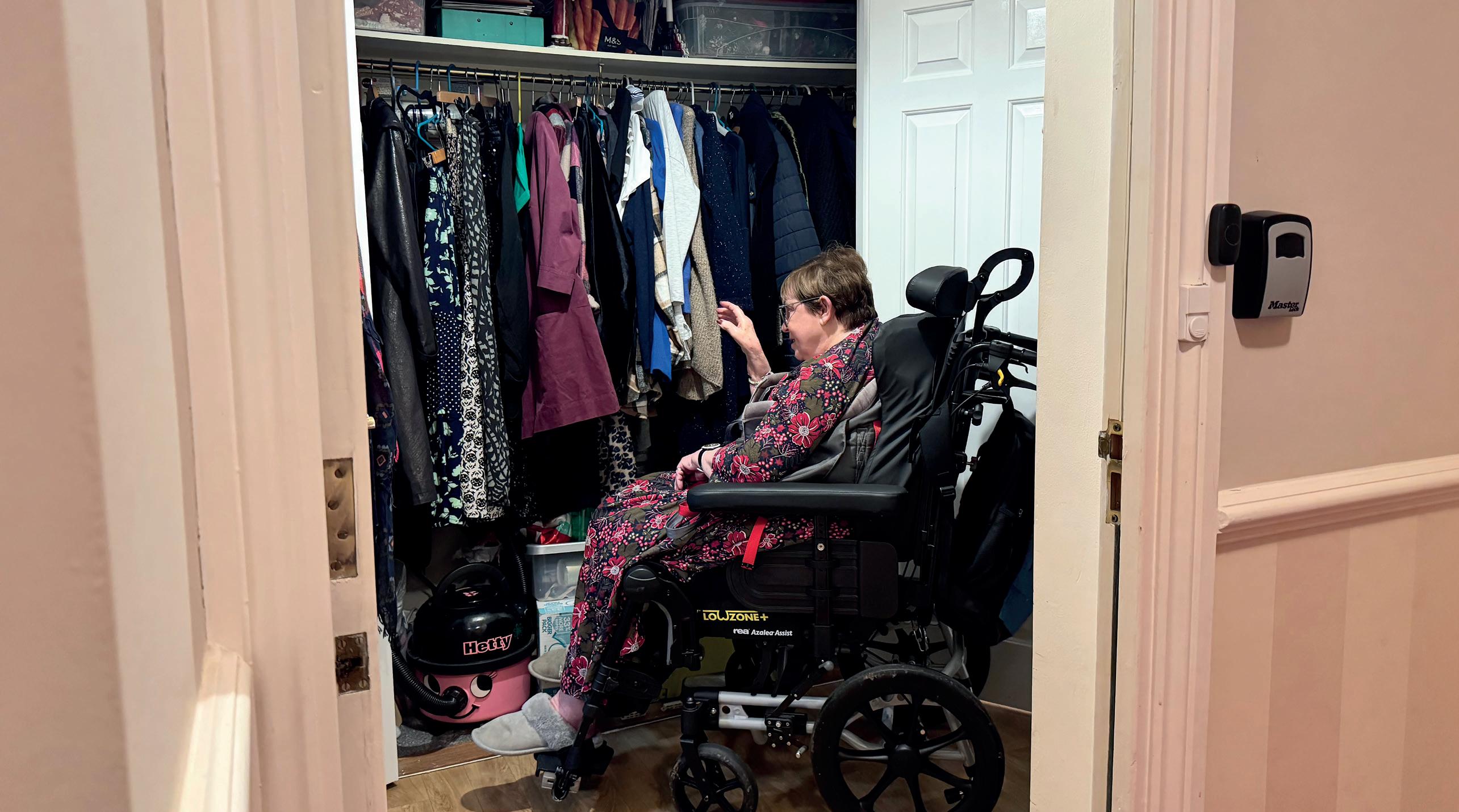
“I’ve always loved clothing and colours, I think I inherited it from my mum as a child. I grew up in the post war years where parents often made their children’s clothing. I soon picked up that habit myself.
“My favourite outfit growing up was a yellow dress my mum made for me. I loved flowers, and I remember my dad saying that the dress was lovely but some embroidered flowers on the pocket would really help set it off. My mum encouraged Dad to add the embroidered flowers himself, and he did. That’s why I loved that dress so much, having something created by both my parents.
“I was lucky enough to do a spot of modelling for a while, before I moved into a teaching career, and became a head mistress. Whatever I was doing at the time, I always like to have a well put together outfit, with coordinated accessories and jackets.
“I did have to do a lot of sorting out after I moved out the family home. My husband had died from prostate
cancer, so I was living there alone when balance issues began. I thought I had weakened some muscles whilst caring for my husband, however as my balance got worse, falls followed, and physio made no difference, I finally found out it wasn’t a muscular issue at all. It was PSP.
“It was difficult downsizing to my flat, seeing my possessions being taken away. I did manage to keep a lot of clothes, although I did give some away as well. I have two wardrobes in my flat, and I rotate the contents, so I have seasonally appropriate items to wear easy to hand.
“When I first moved into my flat, I was still mobile, but the falls continued. I eventually had a really bad fall here in the living room, and unfortunately, I broke my neck. I now have carers who come in daily to help with cooking and washing and such.
“Although I need help with my daily living, I still like to pander to my creative flair. I paint whenever I can,

although it is getting more difficult, I am still capturing my favourite flowers in watercolour. I also know my wardrobe well, so I know exactly what I want to wear each day. Although I have wardrobes full of clothes, I am always on the look out for my next outfit. I can’t browse from shop to shop anymore but I look online to view different styles and then my carer kindly goes out on the hunt for whatever item I am looking for.
“These days I like to wear longer, flowing items. Soft stretchy materials are best, and with elasticated waists. These help to cover the catheter bag on my leg and make it easier for my PEG to be accessed. I have adapted my jewelry a bit too, I can’t manage the clasps on necklaces and bracelets anymore, so anything that just goes over my head or slips onto my wrist is best.
“Currently, my favourite items of clothing are a pair of black sequined trousers, and a green velvet top I got for the Christmas festivities. I saw them online, but they didn’t have my size. Luckily, my carer spotted some in town that weekend and I was so pleased.
“I also love a round necked; black leather jacket I bought some years ago. I don’t really wear it anymore, but I am not ready to give that away yet. When I am attached to an item of clothing, and I give it away, I really think about who I should gift it to. It’s my way of saying, this means something to me, and I want you to have it and enjoy it too. I often give items of clothing to my granddaughter as she loves vintage items, and I have plenty! I recently gave her a coat I brought when I was about 40 years old from Selfridges in the sale. I had my eye on that coat for a long time. I would nip into the shop to view it and feel it, all the while saving up my money to buy it. Then one day it was reduced in the sale, so I got it. I know my granddaughter loves it as much as I did.
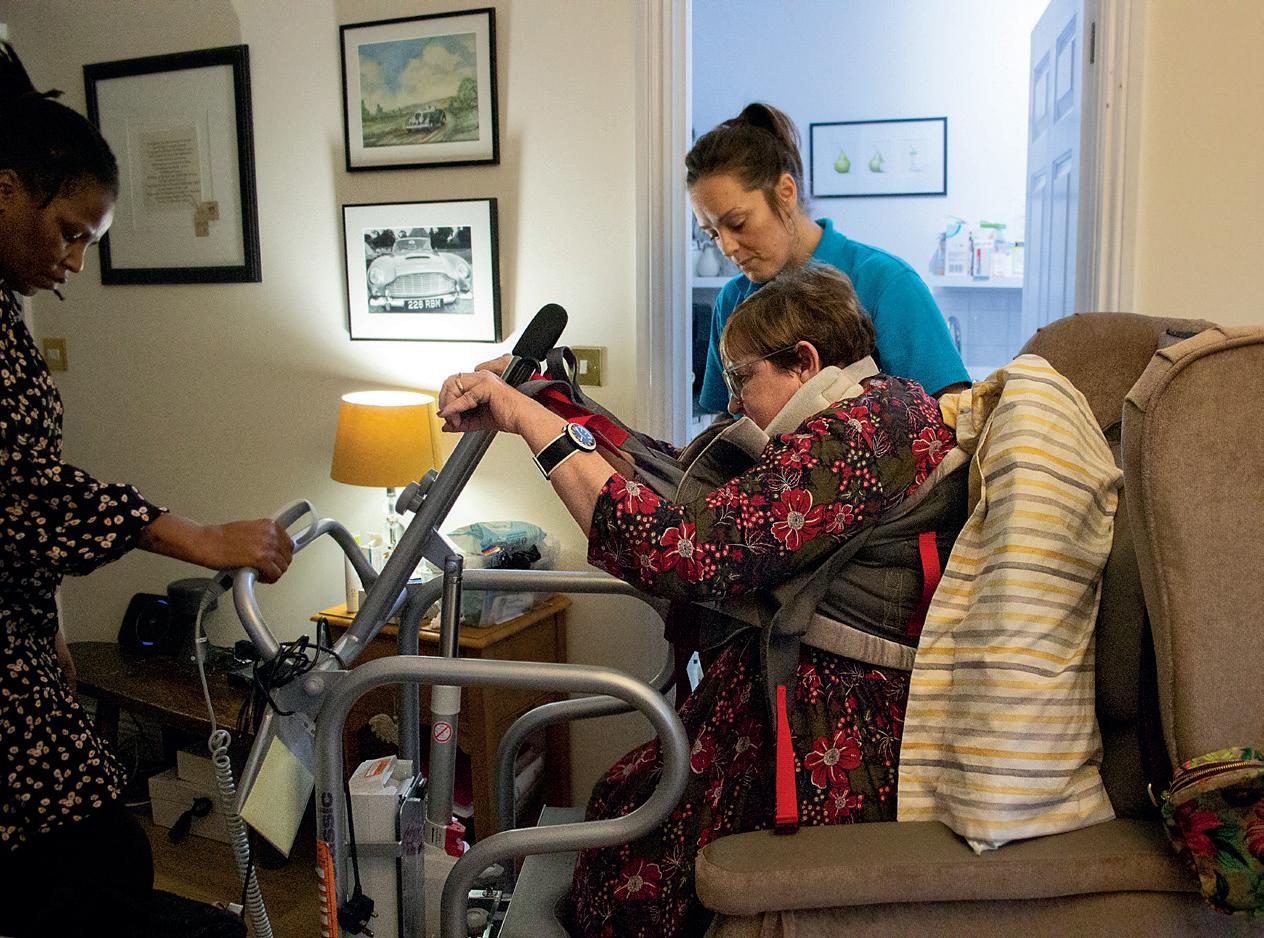
“I have told her that she should invest in one quality piece of clothing a year. Not only will it last, but it also helps you to remember different times in your life. Each item of clothing I own tells a different story. This sparkly grey rain Mack for instance. I know I bought this whilst my husband was in hospital in London. One day when I was visiting him, it was absolutely throwing it down and I didn’t have a Mack. So, I nipped to the shops on Kings Road and picked this up. I am still wearing it now.
“I do have some items that need adjusting, such as a purple cord dress. I wouldn’t be able to get my arms up high enough to pull it on now, so I am hoping to have it adapted to fasten with a zip or buttons at the back, so it is easier to get on.
“PSP can be difficult at times. You lose so much. I can’t move independently, my voice is getting quieter, and I can’t look up (something both doctors and opticians missed whilst my symptoms were being investigated). But there is still joy in life. And as I say, you just must go with the flow and make the most of it.”
“IT WAS DIFFICULT DOWNSIZING TO MY FLAT, SEEING MY POSSESSIONS BEING TAKEN AWAY. I DID MANAGE TO KEEP A LOT OF CLOTHES, ALTHOUGH I DID GIVE SOME AWAY AS WELL."
Regular exercise can play a role in helping with balance, mobility, strength and fitness. It also empowers people to take an active role in managing their own health.

Last year as part of our Mind, Body and Soul Project funded by The National Lottery Community Fund, PSPA partnered with Neuro Heroes, an online neurology gym, to deliver online exercise sessions designed especially for people with PSP & CBD. Since the new service launched, many people with PSP & CBD have accessed it.
Laurie Day was one of the first to sign up to PSPA’s online exercise sessions. Laurie is living with PSP and is cared for by his wife Julia. When Julia saw an email about the new service last summer she felt it was something that would benefit Laurie.
Julia said: "I talked to Laurie and he was keen to give it a go. Attending the sessions has been hugely beneficial for him. Alongside the PSPA sessions he also does a gym workout. This weekly activity has really helped to protect his mobility.
"During the sessions Laurie would learn and practice how to get into a good position for various day-to-day activities. This has meant that when anyone needs him to go from lying to sitting, he is able to assist the carer – making him much easier to physically manage. It also means that what would have taken two carers to mobilise and move him just takes one."

The classes have been designed to provide maximum benefit to people living with PSP & CBD in their day-to-day movement. They focus on different daily tasks such as getting dressed, getting out of the car and moving from a sitting to standing position to help people maintain function even as their disease progresses.
Julia continues: "During the warm ups Laura, the instructor would ask everyone to pretend they were washing their face, their hands and brushing their teeth. By practising these movements it has helped Laurie to maintain as much independence as possible."
The Neuro Physiotherapists make sure the exercises are manageable, while at the same time ensuring that they do push people in order to build up fitness and strength. There are two different levels of classes depending on the level of mobility. Julia said: "Laurie initially started with the more active group, but recently he moved to the seated group. They practice getting in and out of the car, among other movements that people need to live as active and independent life as possible.
“THANKS TO THESE EXERCISES HE IS IN THE BEST POSITION HE POSSIBLY COULD BE WITH PSP. HIS OCCUPATIONAL THERAPIST REMARKED ABOUT WHAT GOOD CONDITION HE IS IN."

"Thanks to these exercises he is in the best position he possibly could be with PSP. His Occupational Therapist remarked about what good condition he is in and how well trained he is in daily movement patterns"
Julia continues: "I believe by exercising regularly, Laurie has improved his strength and enabled him to retain his mobility. By keeping as much of his ability as possible it has enabled him to still engage with the world."
Christine Sajic is living with PSP and started attending the online sessions last year. For Christine the sessions help her to cope with day-to-day tasks like sitting down. Christine said: "I enjoy the classes. While I do struggle with my mobility the sessions have helped me to sit down more easily. I find that I can sit down on chairs and the sofa better. Attending the classes also gives me a routine and something to look forward to during the week. My husband sets everything up and he helps ensure I don’t fall."
Christine’s husband Peter continues: "I also think it benefits Christine to be able to concentrate on something different. It takes her mind off things.

I set everything up and make sure Christine is safe. I think it helps Christine to see other people who have PSP. This disease can be very isolating so it helps to see others in the same position."
All the Neuro Heroes instructors are Neuro Physiotherapists with knowledge of PSP & CBD. Because the groups are small, instructors are able to give direct advice to people. The sessions are in eight week blocks, with a one hour session every week for people with PSP & CBD. During this time the Neuro Physiotherapist will get to know their challenges and how they are moving. These exercise sessions are free for all members of PSPA.
If you are are interested in joining an exercise class please contact our Helpline team on helpline@pspassociation.org.uk or call 0300 0110 122.
PSPA has expanded its support for carers with two new online support groups.

Carers have unique needs that vary depending on the person they support, their personal situations, and their current stage in their PSP & CBD journey. In recognition of this, PSPA has created two new online (Zoom) support groups tailored to specific circumstances.
One group is for carers with a loved one living in a care or nursing home, while the other group is for recently bereaved carers. Both groups provide a warm space for those attending to share their feelings, reduce their isolation and spend some time with people who understand.
CARERS SUPPORT GROUP FOR PEOPLE IN LONG-TERM CARE
Carol Amirghiasvand, Director of Service Improvement and Development said: “We know when the person you’ve cared for moves into assisted living, a residential or nursing home, your role as a carer can change. That’s why we are trialling a new evening group for those who are caring for loved ones in long-term care.
“In these circumstances, there can be a set of new challenges to navigate. Knowing when to visit, high turnover of staff or shift changes, how to access specialist professions, finding suitable activities and establishing relationships with staff can feel overwhelming. And this is alongside the feelings of handing over control of meeting your loved one's needs to others.
“Much can change in a different environment, from the equipment used to the routines residents have. You also might be adapting to living alone and coping with the changes that this brings. There are lots of aspects to explore and we hope this dedicated opportunity for carers to share about their experiences with each other will be a valuable support.”
The group will be facilitated by Jacqueline Ede, an Occupational Therapist with 27 years’ experience in the NHS and now a facilitator and mentor.
Sally Reynolds, a retired Palliative Care Social Worker, cared for her husband Ted until his death from PSP in 2017. She is also a bereavement and loss specialist and will be facilitating the new group for bereaved carers.
Sally explains the empty feeling that carers can be left with following the death of a loved one. “Caring for someone with PSP or CBD takes over your life. Your home is typically filled with various pieces of equipment and there’s a constant flow of carers and health and social care professionals. When your loved one dies, all this activity stops. It suddenly feels very quiet. You can feel a loss of identity or that you no longer have a purpose.
“When PSPA approached me about helping to set up an online group for bereaved carers, I thought it was an excellent idea. I hope this group can help during this transitional time. It is not a bereavement support group, rather it is a group for bereaved carers to come together to share experiences and support each other.
“There are some carers who continue to attend support groups after their loved one has died, but many others stop attending. This new group seeks to fill this gap by providing a space where bereaved carers can share thoughts and feelings, they may feel uncomfortable expressing in front of people who are earlier on in their PSP or CBD journey.”
When Ted finally received a confirmed diagnosis of PSP in 2011, Sally and Ted attended the Hampshire Support Group where they found friendship and laughter. “Ted was initially reluctant to go. He didn’t want to see people who were further along with PSP, but in reality it helped him. At the group Ted was able to see people who had PSP for longer than him but were still laughing and coping well. Seeing that lifted his spirits. Ted and I both got so much out of it, and we made some good friends.”
Since Ted’s death in 2017, Sally has become a PSPA volunteer and continues to help at the Hampshire Support Group, supporting group coordinator, Louisa Roberts-West. “I saw how it made a difference to Ted to be with people who understood what he was going through. It helped to normalise PSP, rather than feel the isolation of having a condition so few people understand. I hope this new group creates a similar environment where people with similar experiences can come together and support one another.
“Six months before he died Ted moved into a nursing home. Ted’s death there was incredibly peaceful and exactly what I would have wished for him. He’d refused
antibiotics, a PEG or any intervention. He’d decided himself it was time to go. I stayed in his room for a week. Our family and friends all visited him to say goodbye.
“On the day he died my brother visited. Ted was a huge Liverpool fan, and my brother told him Liverpool had won earlier that day. Ted smiled and just minutes later he died. We couldn’t believe it. The energy in the room was amazing and it was such a peaceful ending. Life moves on and I’ve had to create a new life for myself, but volunteering for PSPA is a big part of that. I do it in memory of Ted and to help everyone who has received the devastating diagnosis of PSP or CBD.”

SALLY AND LOUISA AT THE HAMPSHIRE SUPPORT GROUP
If you would like to attend either of these groups, please contact volunteering@pspassociation. org.uk or visit www.pspassociation.org.uk/information-andsupport/for-carers/carers-support-groups/
Walk for Hope takes a step in a new direction to improve support for people affected by PSP & CBD

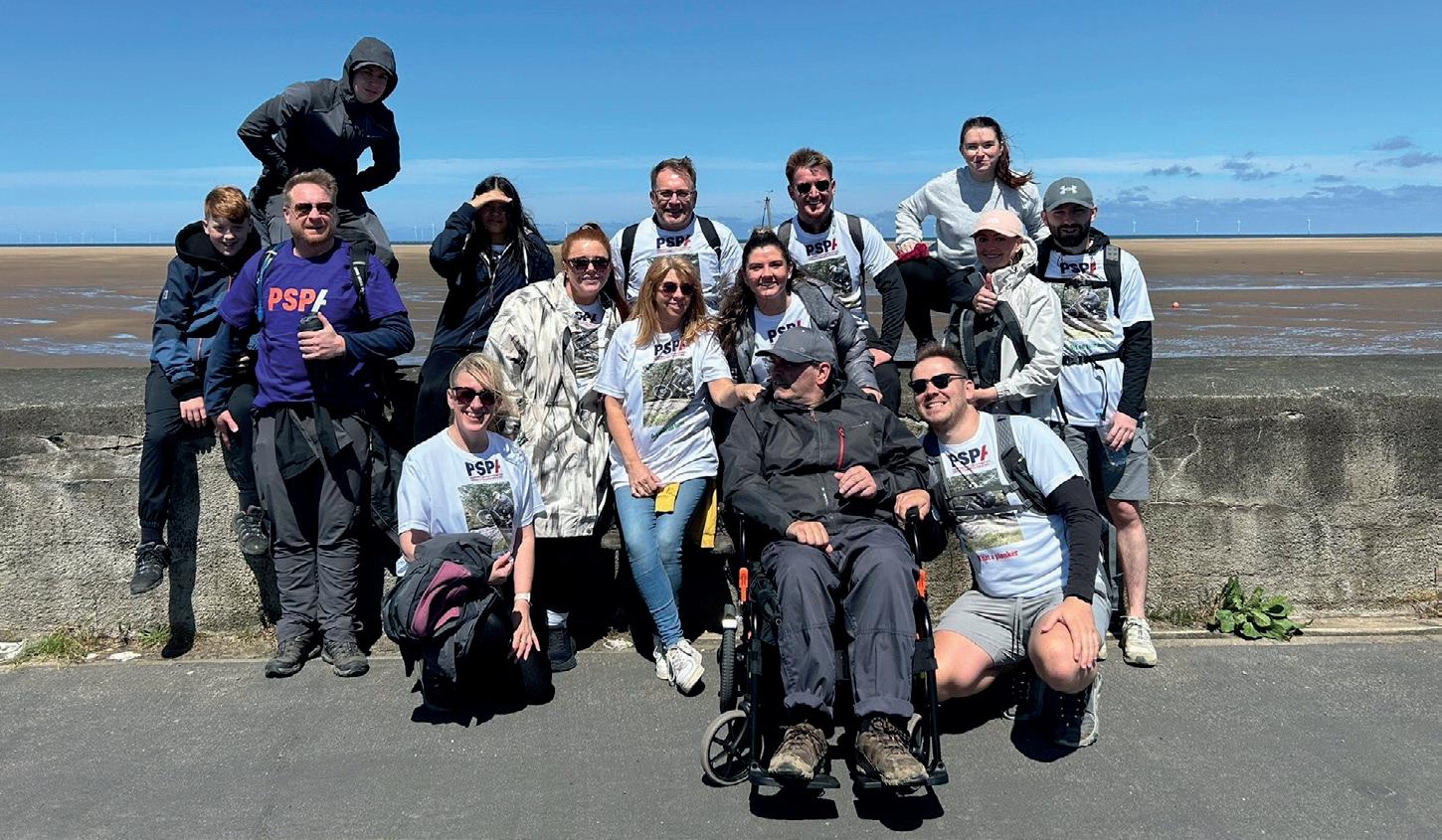
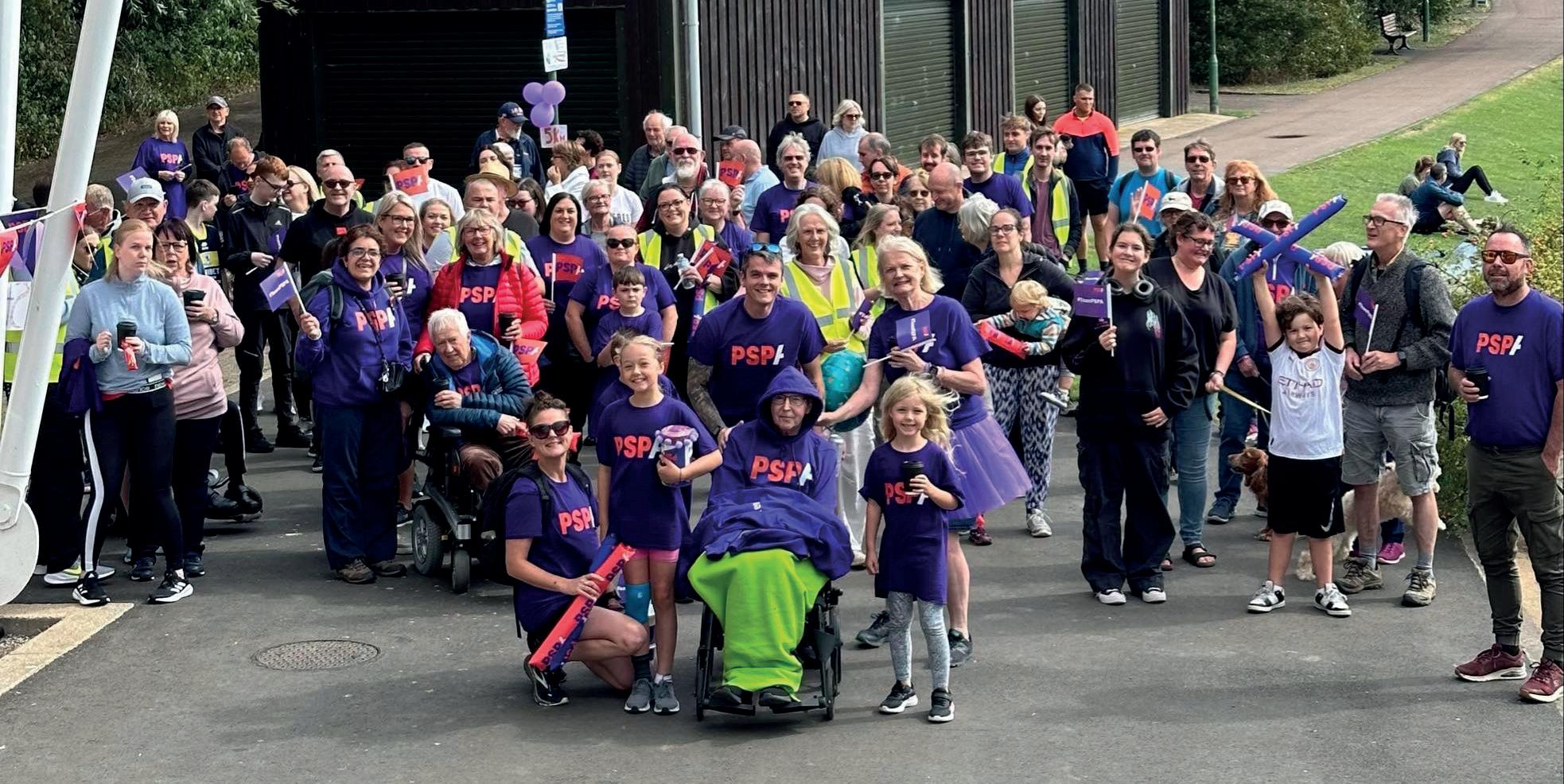


Last year over 30 Walk for Hope events took place, bringing families, friends, colleagues and neighbours together to raise awareness of PSP & CBD and vital funds for PSPA. It was our most successful year ever, raising almost £60,000, a 290% increase on 2023. This was further boosted by a generous match-funding pledge of £30,000, bringing the final total to £88,000.
Our Walk for Hope is so much more than a walk – it’s a powerful movement where the PSP & CBD community take action against the devastation both conditions cause. From wheelchairs to pushchairs and threelegged races, every single Walk for Hope event showed the incredible strength and courage of the PSP & CBD community.
We want to build on this success by giving the event a new identity which captures our aim of moving forward towards a better future. We want to show how every step taken is a step closer to discovering lifechanging treatments. A step closer to improving the quality of life for people living with PSP & CBD. A step closer to speeding up diagnosis.
This year we are excited to invite you to join our first ever PSPA Pathway to Progress, a virtual event where the distances walked, run or cycled will be logged and added together. We hope the PSP & CBD community will come together to walk a very special and symbolic path that has brought positivity and hope to so many. It is the path that led Raynor and Moth on a journey that has captivated the world (see page six).
Together, we want to collectively walk the 630 miles of the Southwest Coastal Path - The Salt Path.
To take part in PSPA Pathway to Progress, you can walk anywhere you wish, covering the distance you feel comfortable walking, at any time. We just need the miles you clocked up and the total you raised. Whether you complete your walk in Devon, go for a bike ride in Glasgow, or head to the park around the corner, your miles will be added together as a symbol of how our individual efforts make our community strong.
Our goal is to raise £40,000 to help ensure more than 10,000 supporters receive four copies of PSPA Matters magazine each year.
Whether you're walking, riding, or cheering from the side lines, your participation makes a difference and will put PSPA on the Pathway to Progress.
To take part simply arrange your walk between 1 April and 31 September 2025. Once you have completed your walk let us know how many miles you have covered.
Visit our website to see a map showing how far to our goal we are to date, scroll photos of people who are walking and link in with the PSP & CBD community to share your encouragement and support.
Register your interest at fundraising@pspassociation.org.uk
Two volunteers launch a new PSPA Support Group to help people affected by PSP & CBD in Bradford.
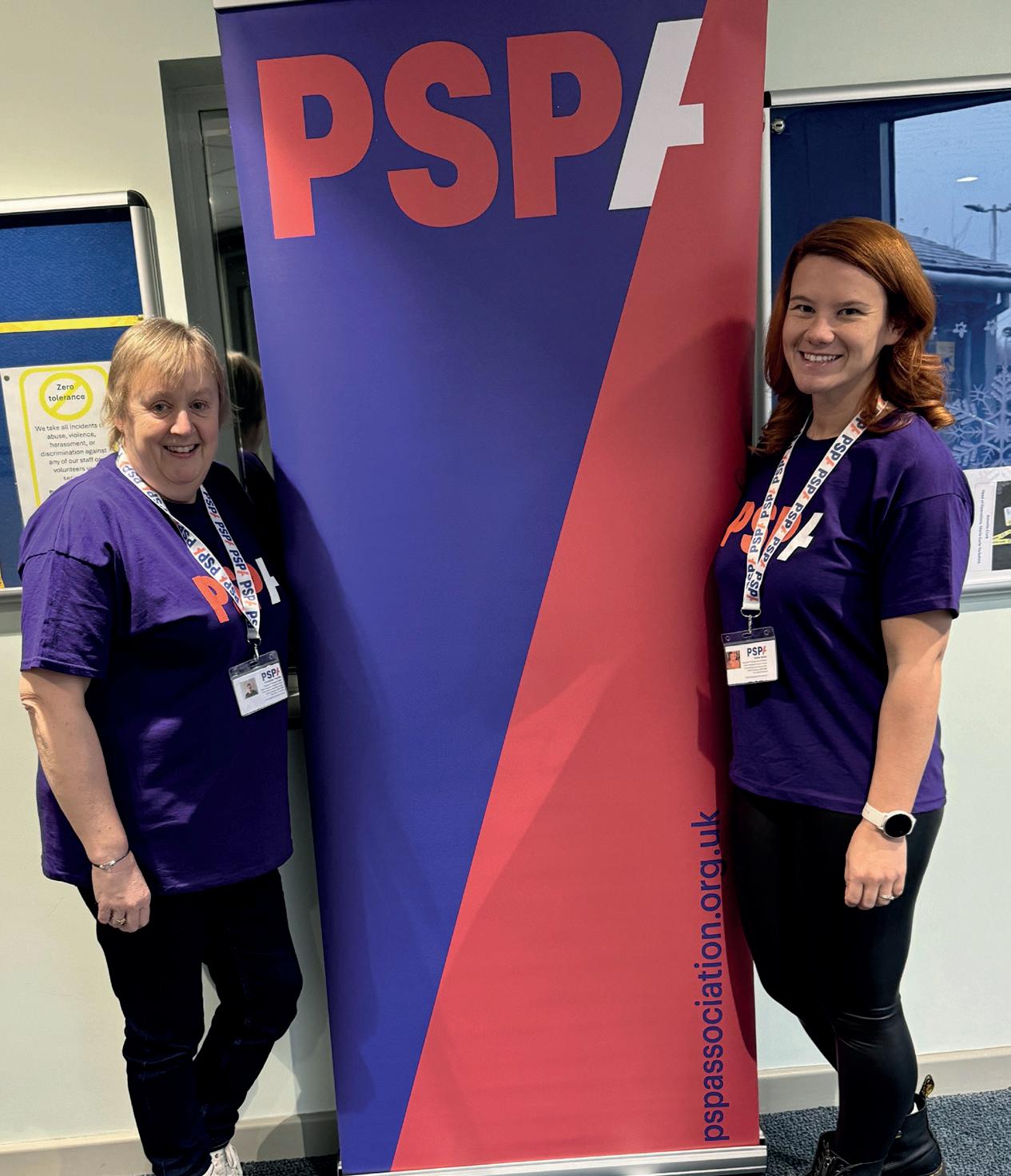
PSPA volunteers, Katie Batty and Christine Foulds, decided to set up a new group in Bradford to help other families affected by PSP & CBD. Both Katie and Christine felt the frustration at the lack of knowledge about PSP and wanted to do something to support others living locally.
Katie became a volunteer when her dad was diagnosed with PSP in 2023 after an earlier misdiagnosis of Parkinson’s. Katie said: “Following the diagnosis, we felt really isolated, having never heard of PSP before. As a result, I felt a support group in our area would not only be able to help us as a family but also ensure no other families feel alone.
“Dad did a lot of research into PSP. What he saw online shocked him and he asked me to look into PSP and just tell him the bits I thought were relevant for now. So, it’s something I’m very sensitive about when talking to people at the group. When someone is newly diagnosed, I don’t want them to feel overwhelmed

with information relevant to those at a later stage of progression.”
The new group takes place every month in the local hospice that cares for Katie’s dad. Katie said: “Our local hospice has been a huge support. Ever since Dad’s initial Parkinson’s diagnosis, he has had physiotherapy at the hospice and attends the weekly wellbeing group.
“Managing a condition like PSP feels so much harder because so few professionals are aware of it. When I saw an advert on Facebook asking for people to help set up PSPA Support Groups I thought it was a good opportunity for me to use my relationships and connections both at the hospice and also from my work as a trainee social worker to help others affected by PSP & CBD.”
At the first meeting in December, eight people came together to share experiences, information and support. Katie said: “It was lovely to see people at our
first meeting. They tended to be at the earlier stage of their PSP journey. Everyone had a similar story in terms of delayed diagnosis and having to find out for themselves about the condition. One couple there said they had to get PSPA to provide them with information for their doctor.
“The Physiotherapist, Speech and Language Therapist, Dietician and Parkinson’s Nurse from the hospice dropped in and told everyone about services that were available. I’m hoping that we can have a professional at every meeting to talk about their work and how they can help support people with PSP & CBD. It’s also been lovely to connect with Christine. We have so much in common and she has been a huge support with getting this group off the ground.”
Christine responded to an PSPA advert and volunteered to be a helper at the group and support Katie. For Christine it was the perfect time for her to volunteer as she had recently retired from nursing.
Christine’s dad was diagnosed with PSP at 67, six years after symptom onset. Christine said: “Dad and I went to a PSPA support group which we both found invaluable. It was so helpful to talk to others who were experiencing the same things as us.
“Dad’s GP wasn’t great, so we got a lot of our information from PSPA and the Support Group. Dad was given a continuing healthcare package that provided carers three times a day. This greatly supported Mum who was his main carer, and with additional help from myself and my brother, we were able to keep him at home until he died.
“Dad died eight years ago. Since then, I’ve followed PSPA online and kept up-to-date with what the charity was doing. When I took early retirement from nursing, I saw an email from PSPA recruiting volunteers to help with a new support group. Getting involved felt like such a good way to repay all the help and support we received.
“It’s been wonderful to support Katie in setting up the group. We really didn’t know what to expect at the first meeting but there was such a nice atmosphere. When the meeting ended both Katie and I had such a sense of achievement. I initially volunteered to help others, but volunteering has had a huge positive impact on me.
“We know it will take a while for the group to build. I’m really looking forward to watching it develop. When Dad got his diagnosis of PSP in many ways we were lucky. I’d worked as a nurse for 32 years at a GP practice so, I knew a lot of the healthcare professionals. This meant I knew the NHS and where to go for support. You really do have to push for whatever
help you need. I’m keen to use that knowledge to help others living locally to get the support they need to live the best possible quality of life.”
Both Katie and Christine want to develop the group so that it responds to the needs of everyone who attends. Katie said: “I want our new group to be tailored to what people want and what will be most beneficial for them. I’ve personally seen how much knowledge can help, so I want the group to be a place where people can learn from each other and find out where to go for support and what they can claim for.”
UPCOMING MEETING DATES FOR THE BRADFORD SUPPORT GROUP 14 March | 11 April


We would like to set up Support Groups in the following locations – Hertfordshire, Lincolnshire, Liverpool and Gloucester. If you are interested in finding out more or would like to volunteer please email volunteering@pspassociation.org.uk or visit www.pspassociation.org.uk INFORMATION AND
PSPA’s Helpline is expanding its team with two new Helpline Care Navigators.

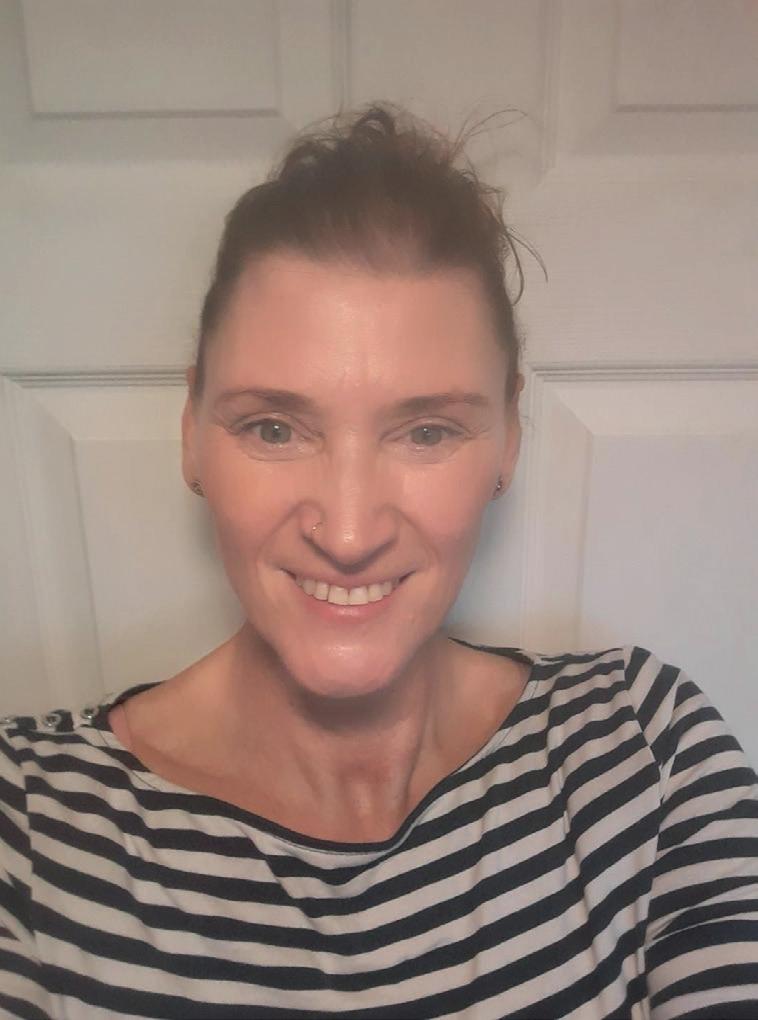
Navigating conditions like PSP & CBD can feel lonely and isolating. Often a person will receive a diagnosis after living a long time with progressing symptoms, or believing they had Parkinson’s disease or another condition.
For family members and carers they may feel uncertain about the future, and how to best help their loved one. They’re likely to be speaking to healthcare professionals with very limited experience of PSP & CBD and feel that their questions are not being answered.
Whether you are living with PSP or CBD, a carer, family or friend, or if you are a health professional looking after someone with either condition you can contact PSPA Helpline. Every day PSPA’s Helpline provides information, emotional and practical support to people affected by PSP & CBD. It also connects people to all the other services provided by PSPA, as well as signposting and referring to other organisations.
Our Helpline service has recently expanded the team with two new members, to enhance our care and support in Wales and Scotland. Dionne Ward joins with experience in supporting people living with neurological and life-limiting conditions both in the charity and NHS sectors. Living in Wales, Dionne has a passion for health and wellbeing and empowering people to live the best life possible.
"It's exciting to grow our Helpline team with two new posts. Raising awareness of PSP & CBD and increasing our existing support in Scotland and Wales is important to PSPA. There are a few differences in both NHS and Social Care provision across these two devolved countries. Dionne and Amanda will be able to offer specific information and support around these.
Julia Brown, PSPA Helpline Manager
As well as supporting people affected by PSP & CBD, Dionne has also been tasked with strengthening our relationship with health and social care professionals to raise more awareness of PSP & CBD across Wales.
Amanda Pottayya lives in Scotland and has a background in carer support and Citizens Advice. Amanda is committed to making a difference to families living with the challenges of PSP & CBD. She is passionate about ensuring people are listened to and receive a person-centered approach. Amanda will continue to develop support and awareness in Scotland. She will work closely with key neurological health professionals alongside supporting people living with PSP & CBD, their families and carers in Scotland.
If you would like to speak to someone about living with PSP or CBD and find out more about the support available to you, please get in touch using the details below. Tel: 0300 0110 122
Email: helpline@pspassociation.org.uk
In January, Richard Garland, a Chartered Surveyor from Longframlington, Northumberland, took on an epic challenge that was inspired by his mum's rare and complex diagnosis.

RICHARD COMPLETED THE RACE IN 125 HOURS AND SO FAR, HAS RAISED MORE THAN £3,000 FOR PSPA.
When Richard’s mum, Sue was diagnosed with PSP, Richard decided to raise awareness for PSPA by completing the Montane Winter Spine Race, a gruelling 268-mile non-stop course along the Pennine Way, known as Britain’s Most Brutal Race. He was inspired in part by his mum's own walking challenge in May 2024, despite at the time living with what professionals thought was Parkinson’s disease.
Reflecting on his mum's diagnosis, Richard shared: "Mum was diagnosed with PSP last year after experiencing worsening symptoms for years. It was a challenging journey to get a proper diagnosis, as initially, they thought it was Parkinson's. However, we knew the symptoms didn’t match typical Parkinsons. The diagnosis is tough and although there is no treatment or cure, it helps to understand what is going on and plan for the future."
He continued: "PSP is a condition that many healthcare professionals are not familiar with, so we often find ourselves explaining it to them. The unpredictable nature of PSP makes it hard to know what is the disease is progressing and what is something else. The help of PSPA in understanding and explaining the disease is invaluable. Seeing how quickly it has affected my mum is heartbreaking, stripping her of her speech and mobility, especially considering she completed a 100-mile walking challenge just months before her diagnosis."
Despite the difficulties, Richard found solace in completing the Montane Spine Race. It was not only a personal achievement but also a chance to raise awareness for PSP and honour his mum's strength. Richard completed the race in 125 hours and so far, has raised more than £3,000 for PSPA.

12 PEAKS IN 12 MONTHS
Lucas Christie and his family conquered 12 peaks in 12 months in memory of his grandmother Dianne Edwards. Alongside family and friends, he raised an amazing £1,555.

Rachel Watkins held a bake sale and coffee morning to raise money for PSPA. As well as baking, Rachel is busy training to take part in this year’s London Marathon as part of #Team PSPA. We look forward to cheering her (and the rest of #TeamPSPA across the finish line).

Alpna Chavda held a festive fundraising event at her beauty spa. The local community came out in force to support the event, raising an incredible £1,300.

Best friends Chris and Jack ran the Manchester Half Marathon. The friends ran in memory of Chris’ grandad, Brian Suckling. Together they raised a fantastic £670.

Jemima Scott Williams ran the TCS Amsterdam Marathon in memory of her best friend Jesse’s mum Anna, who died in 2023 from PSP. As well as clocking up the miles, Jemima raised a wonderful £1,358!
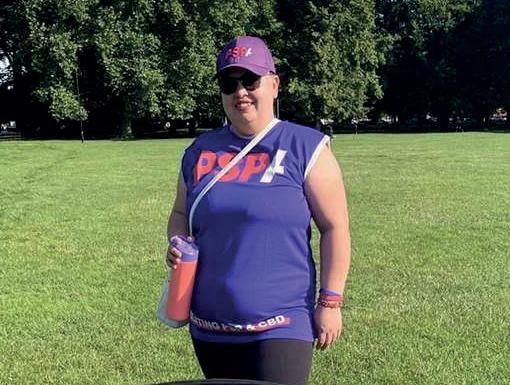
Jade Hunns-Marshall took part in our 30th Anniversary Walk for Hope, by walking 10,000 steps a day for the month of August. Jade smashed her target and raised a fantastic £1,657.

£1,000
Mary Crackles along with her family and friends held a musical fundraiser raising an incredible £1,000. The event featured local band The Red Rose Roosters, who rocked the local village hall and brought the community together.
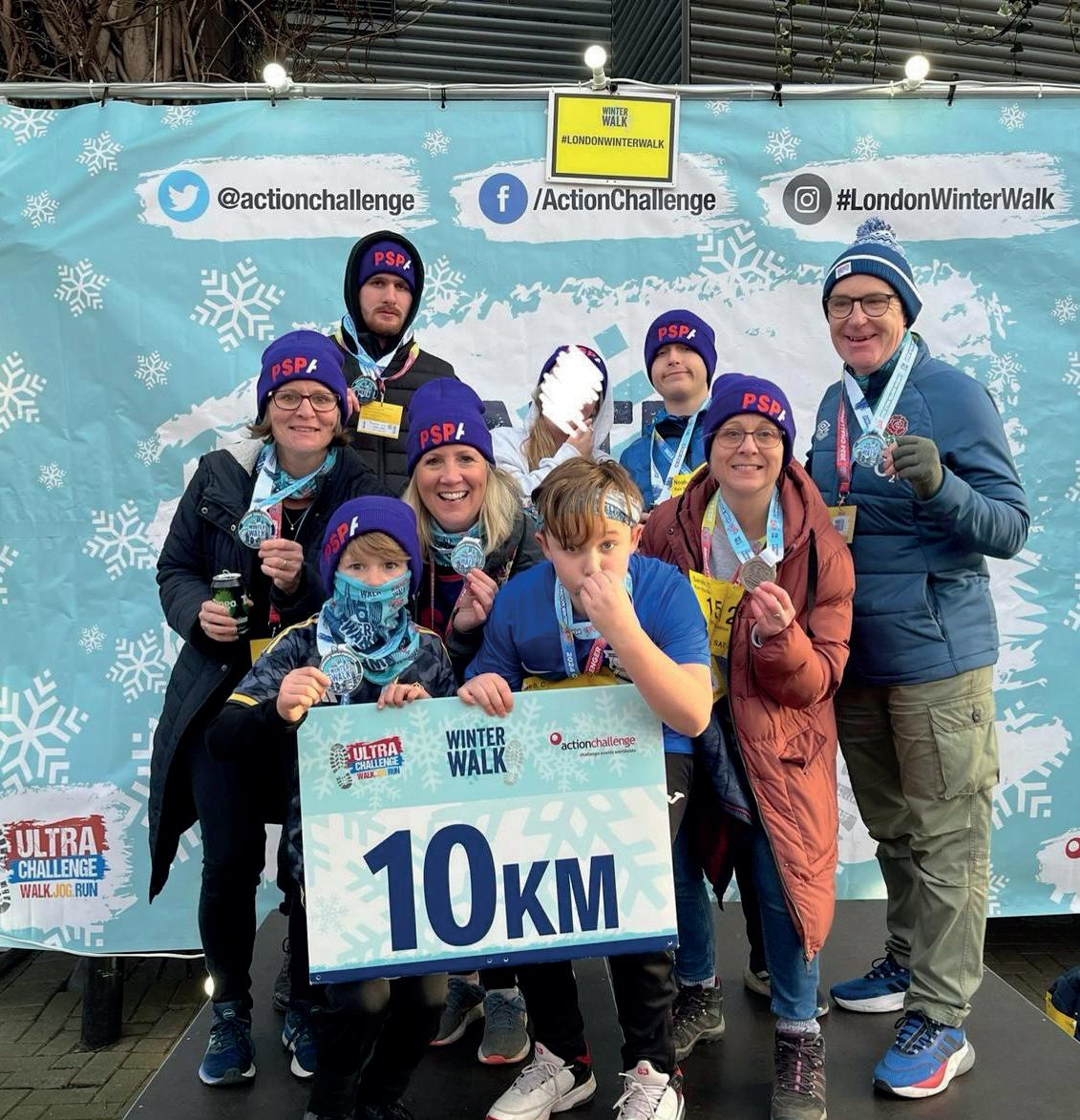
THANK YOU AND WELL DONE TO ALL OF #TEAMPSPA WHO COMPLETED THE WINTER WALK.
Team PSPA was out in force for the London Winter Walk with 25 people walking distances of 10km, half marathon, and full marathon to raise money for PSPA. So far they have raised over £13,800 – thank you.
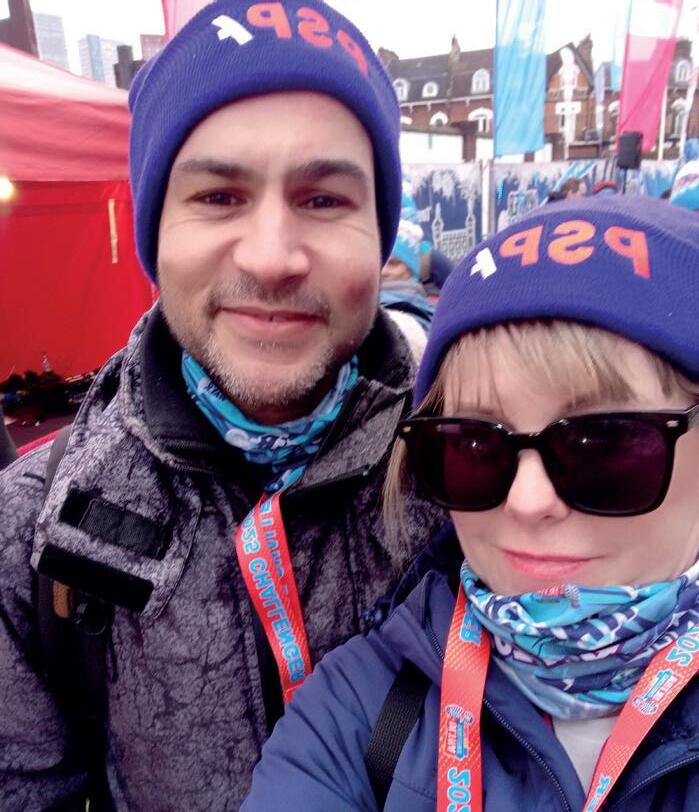
Michaela and Paul Flynn walked the full marathon for Michaela’s dad, John Reilly who was diagnosed with PSP in 2021. Together they raised an amazing £1,530.
£1,530
£13,800
£2,254
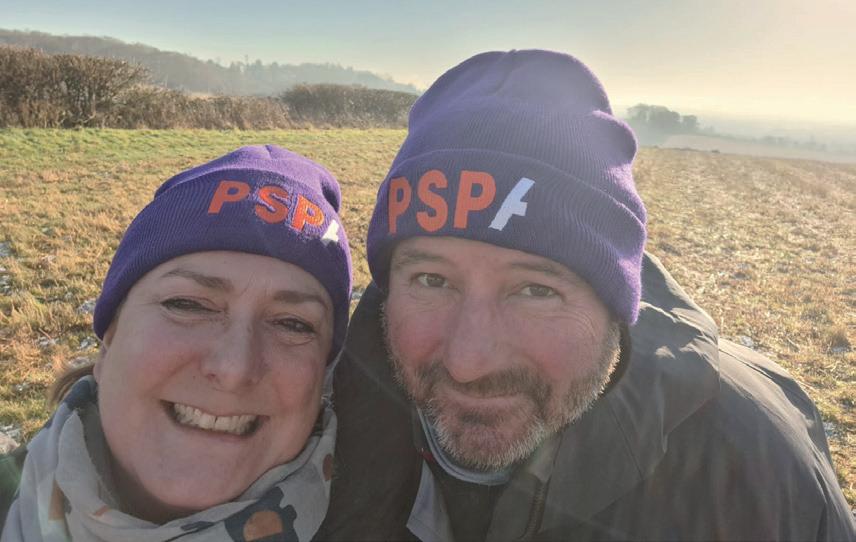
Jo and Jim Perrin walked the half marathon for Jo’s mum Sue Denham who is living with PSP. The couple raised a fantastic £2,254!
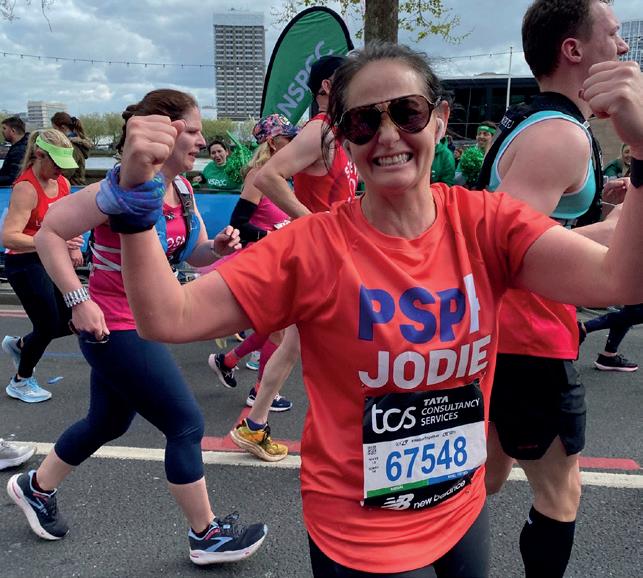

May The Salt Path Film is released 23 June
– Session Two